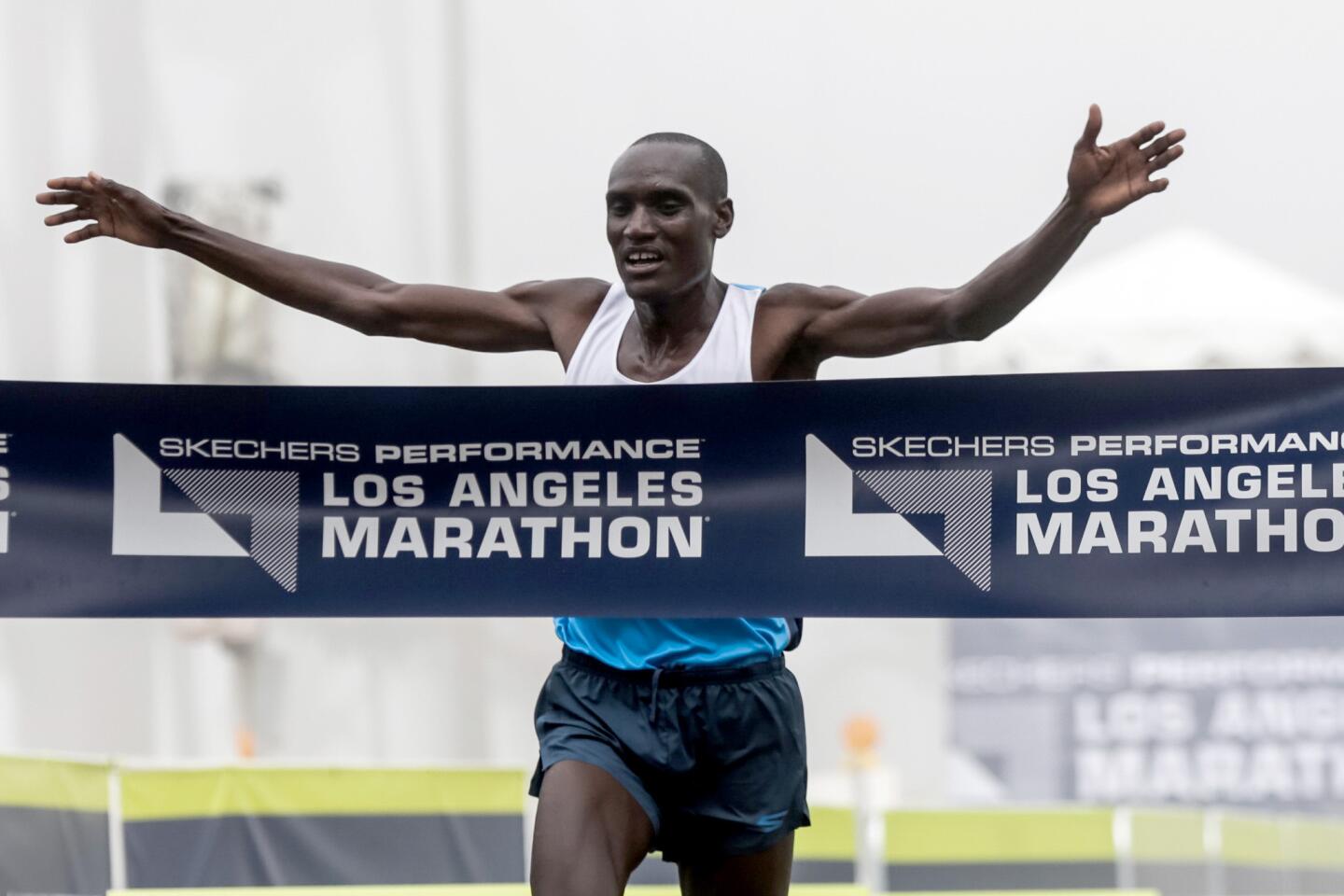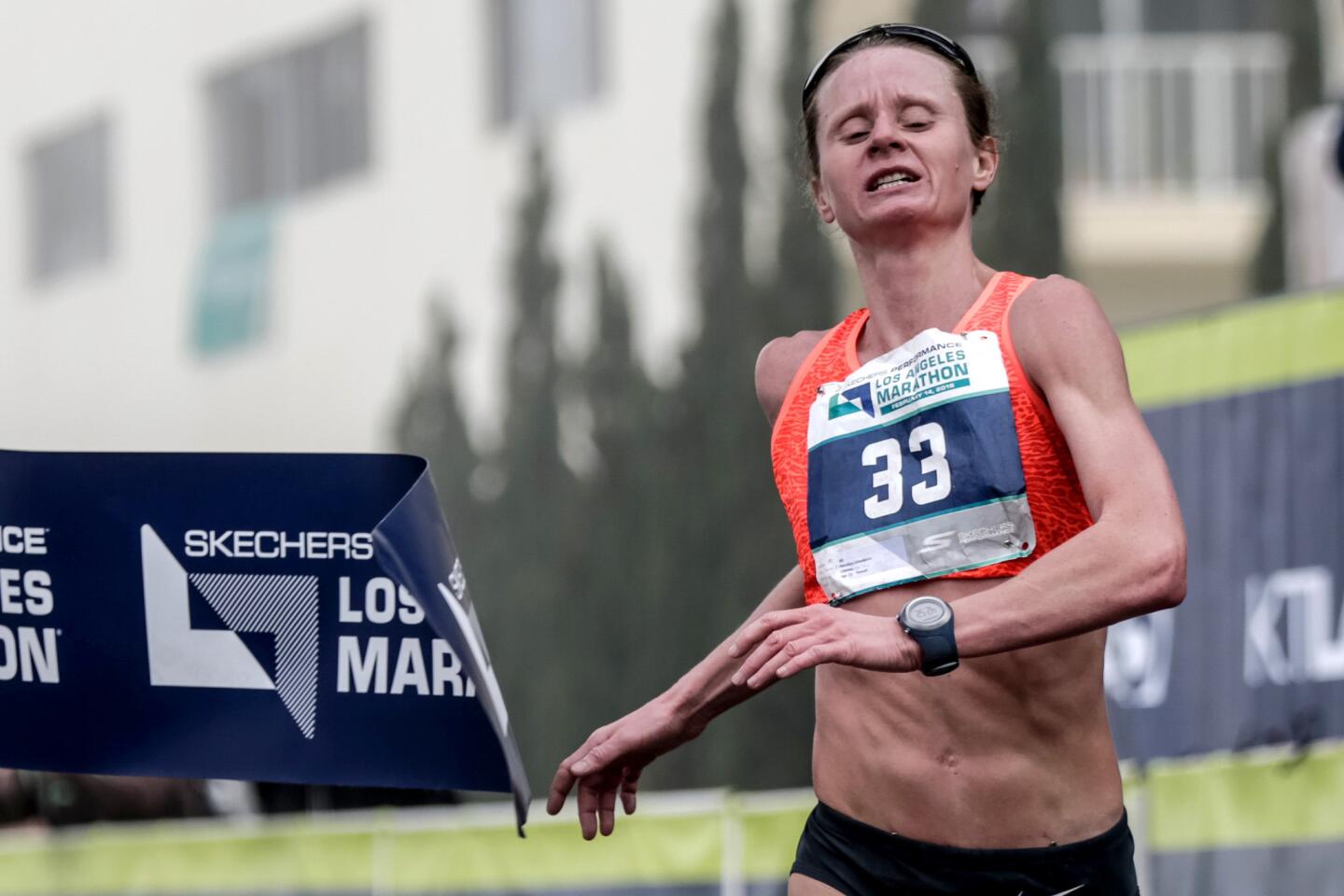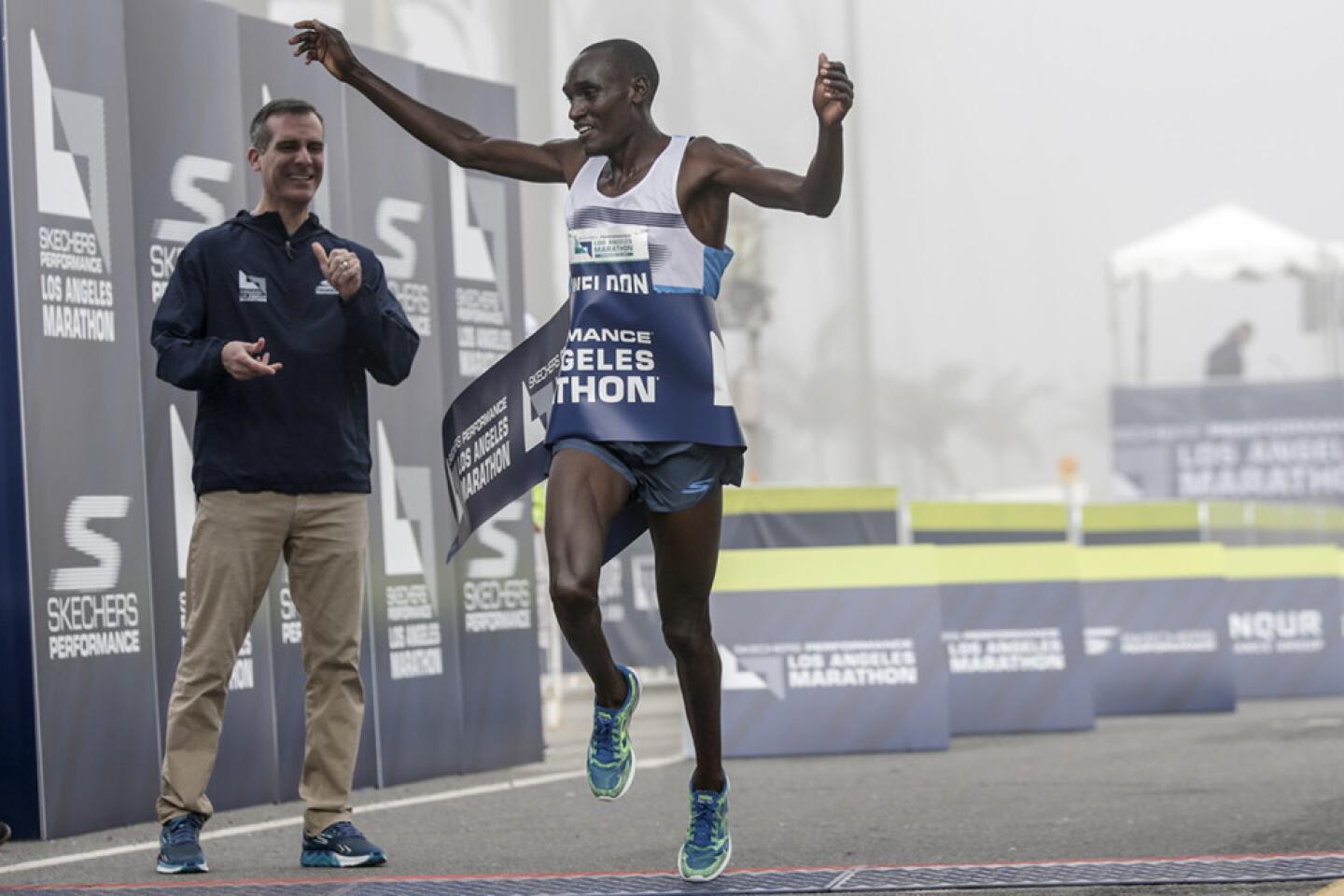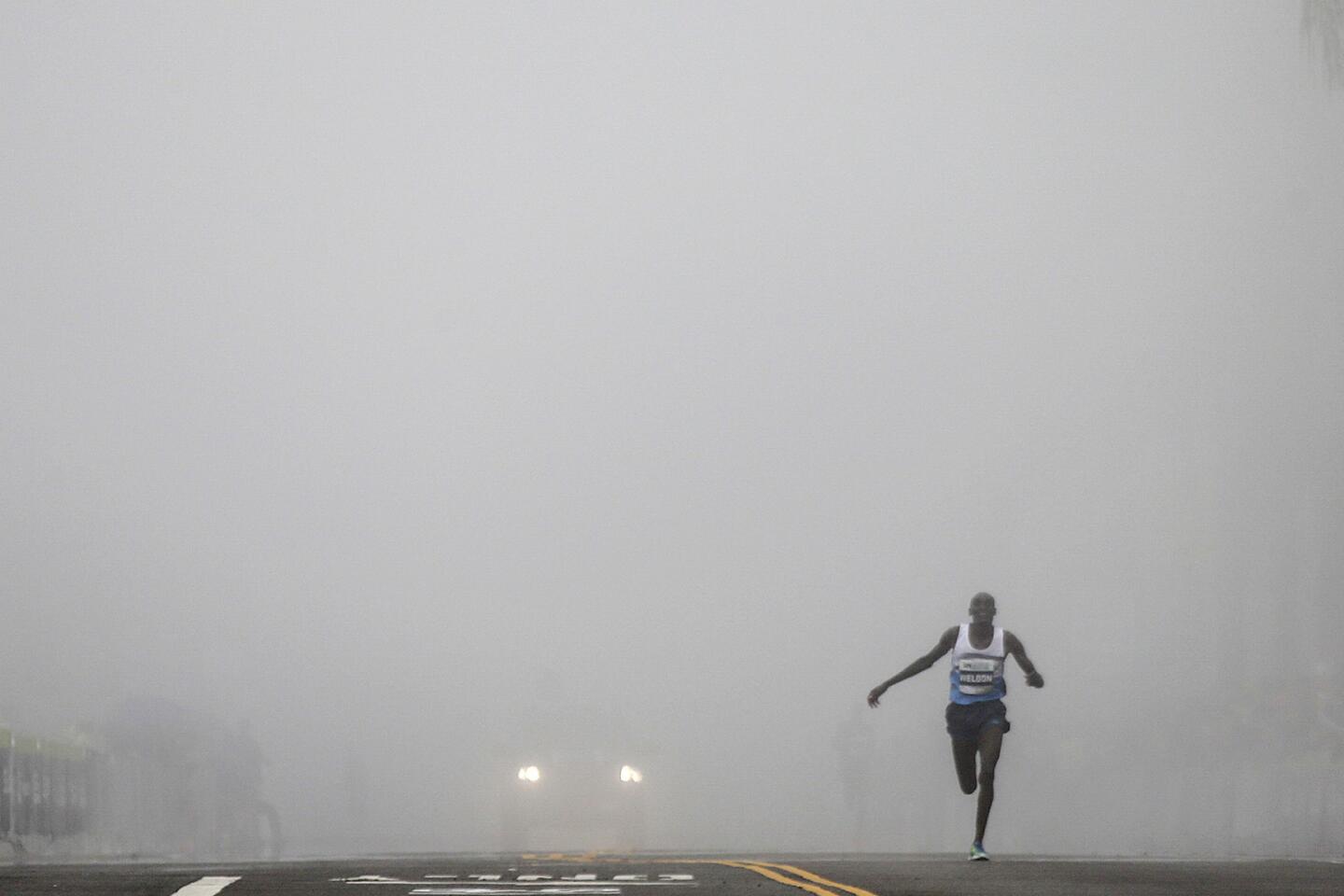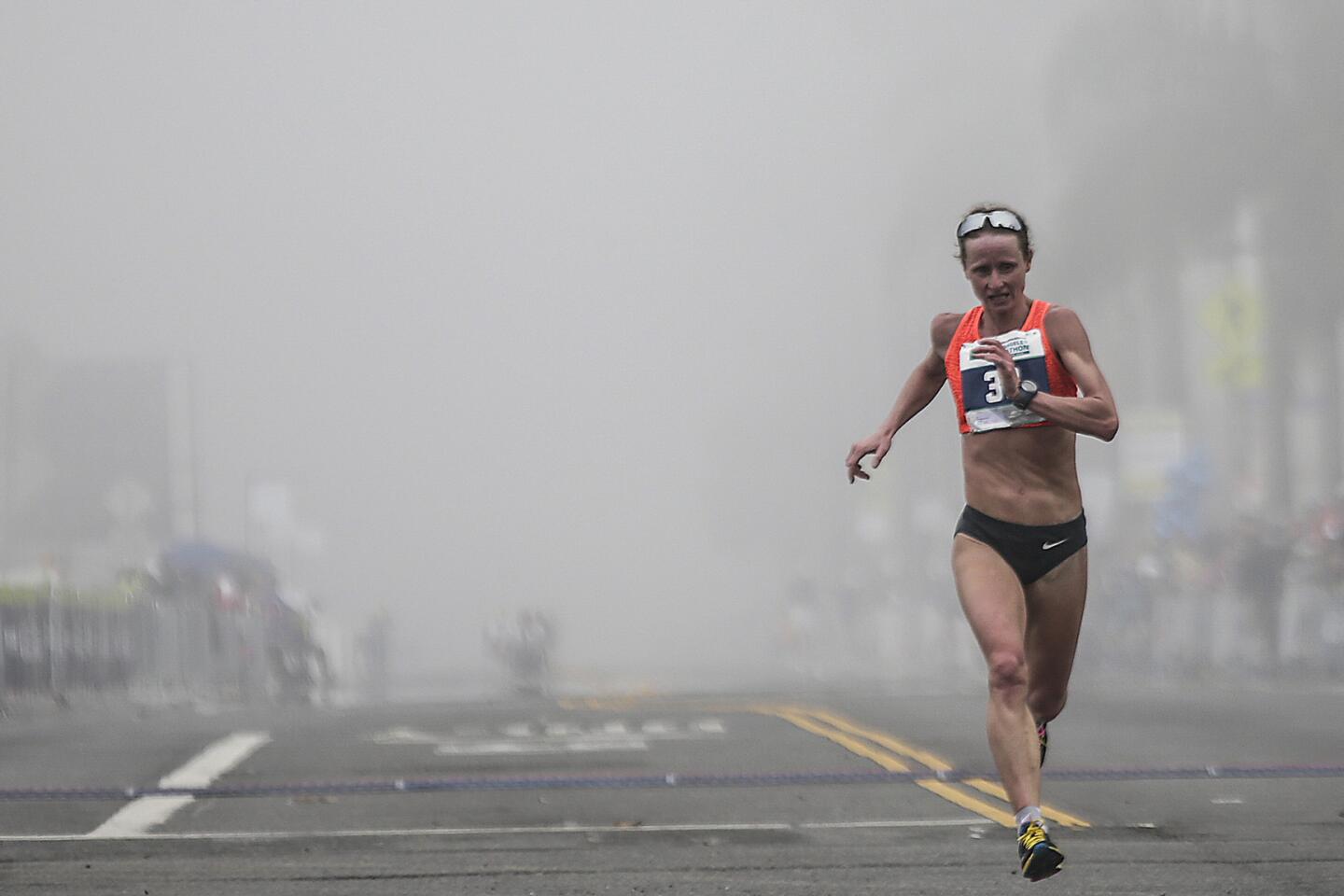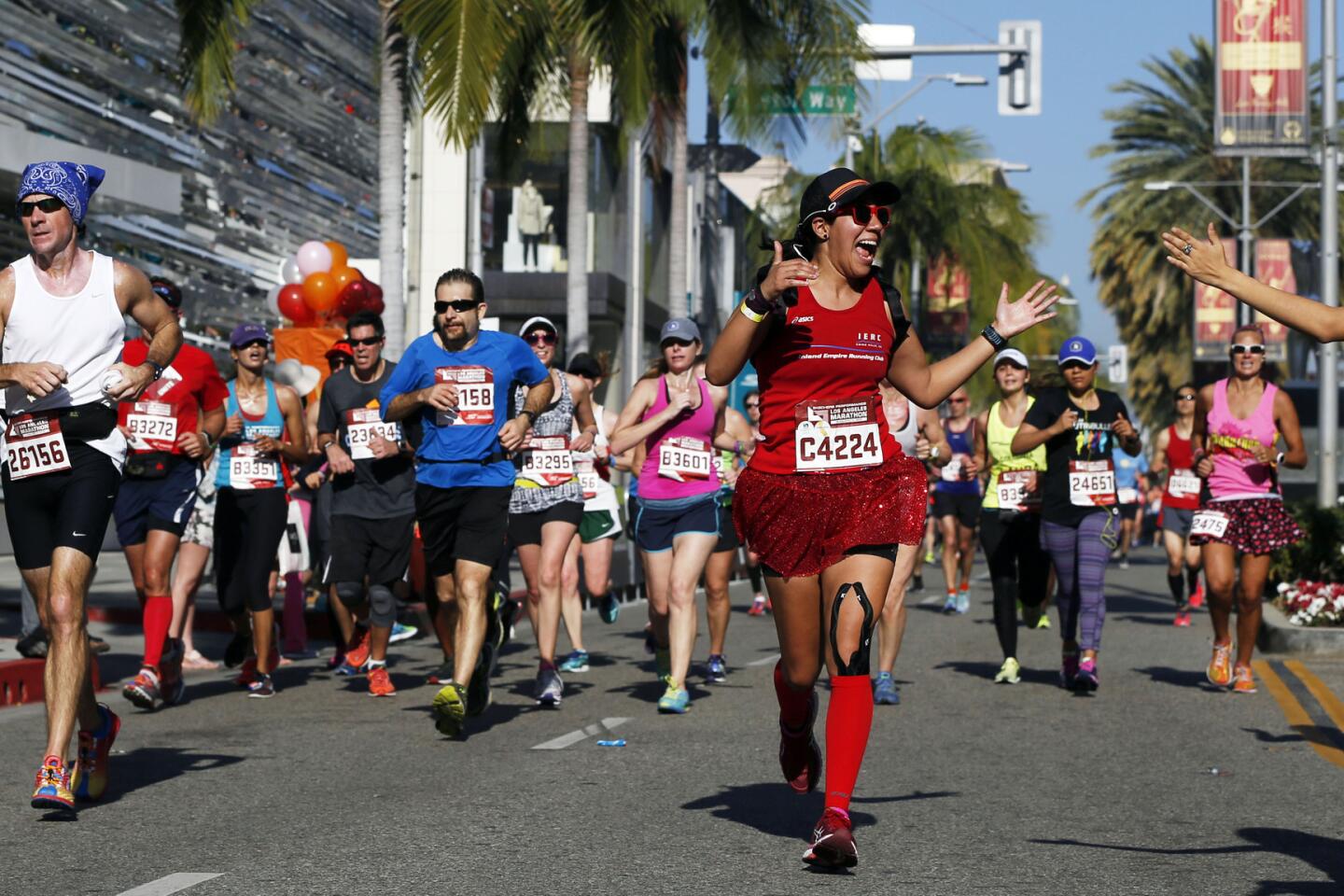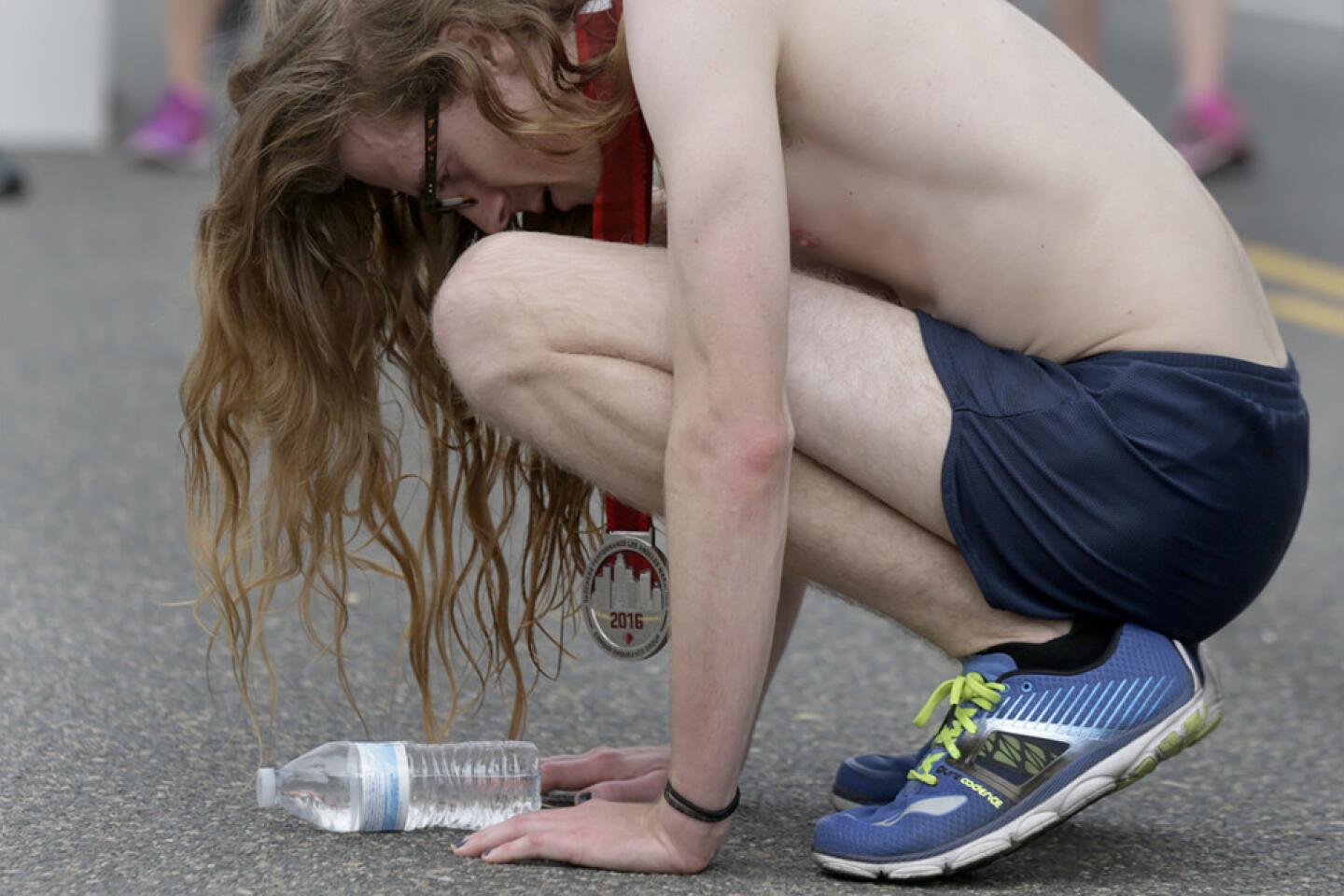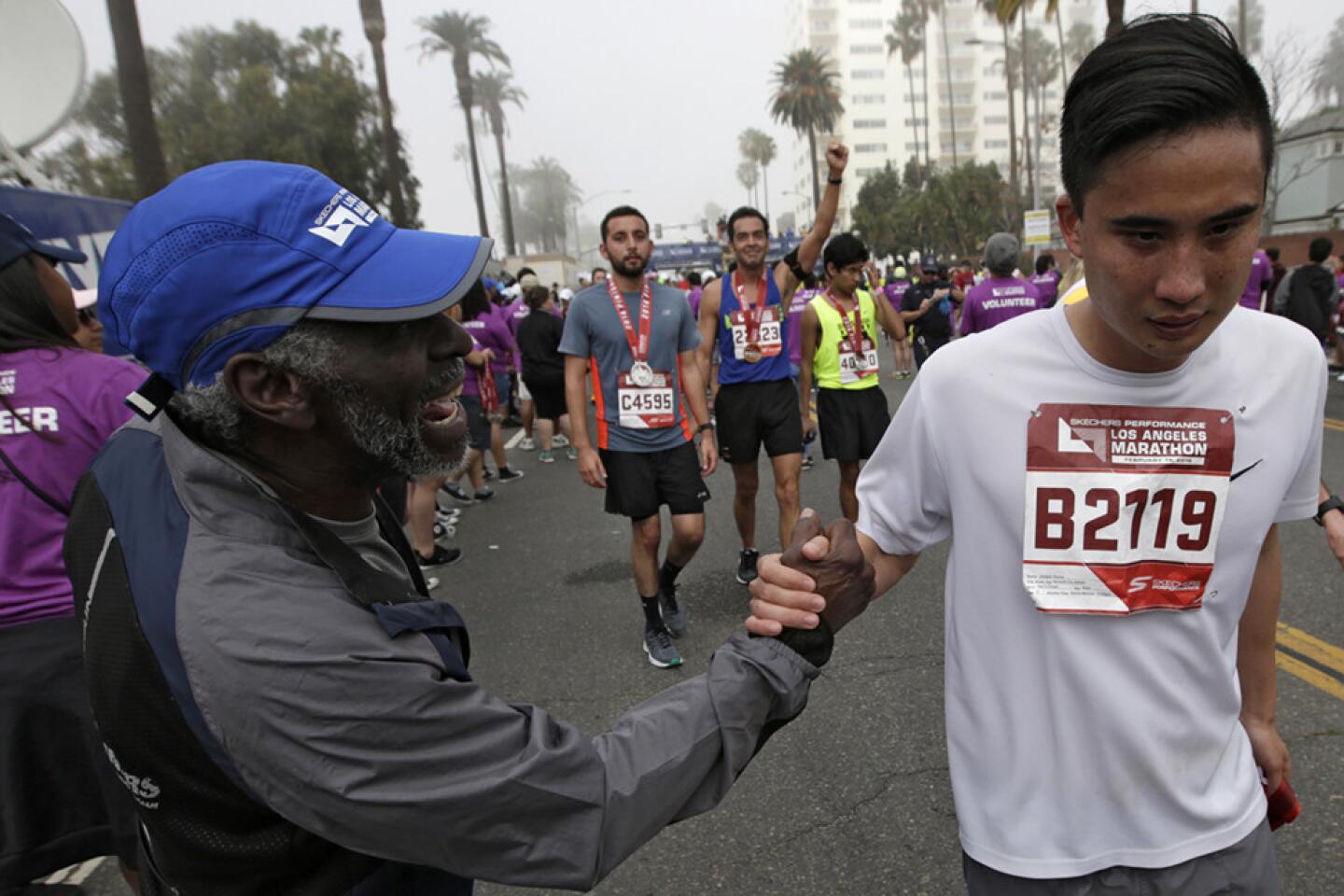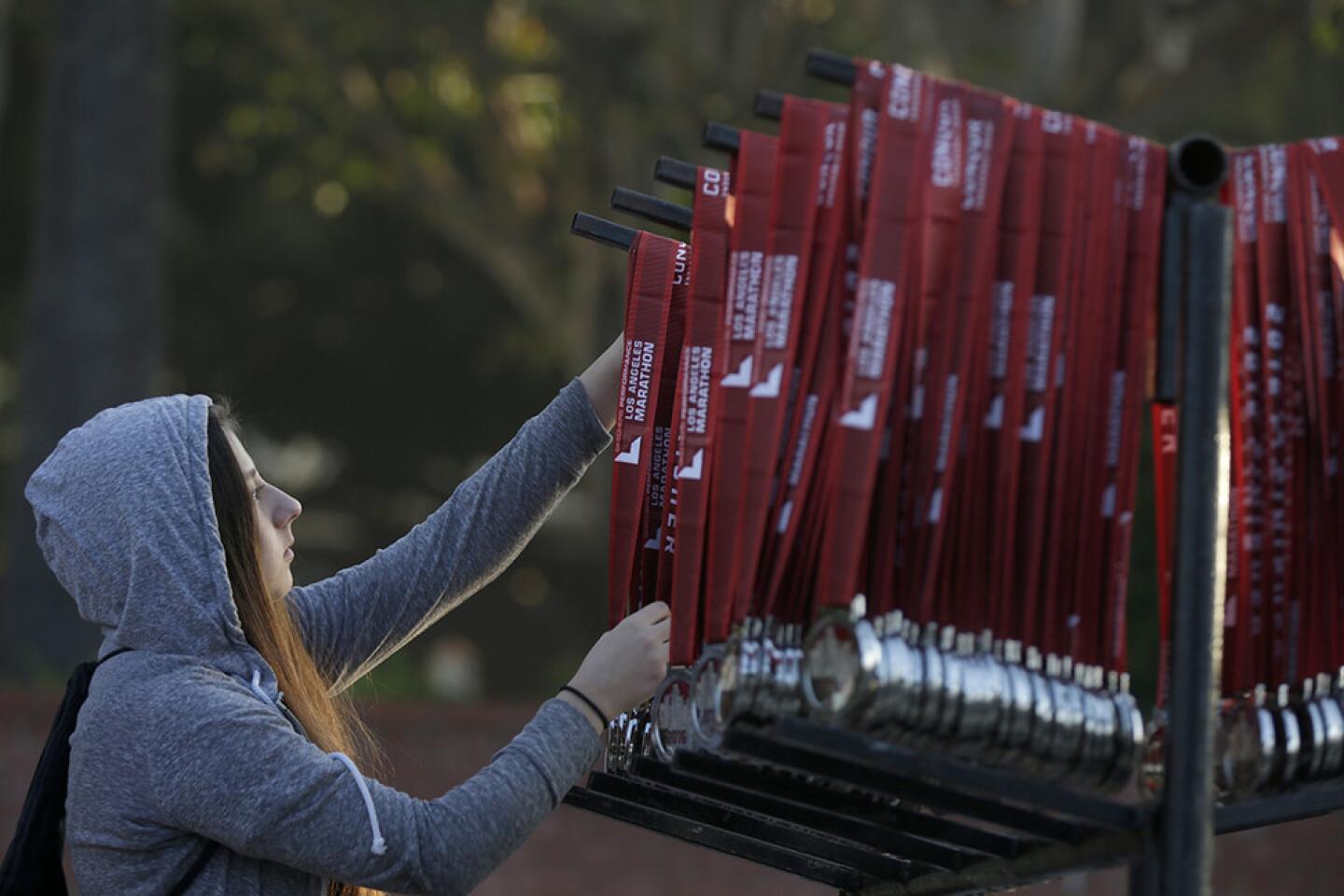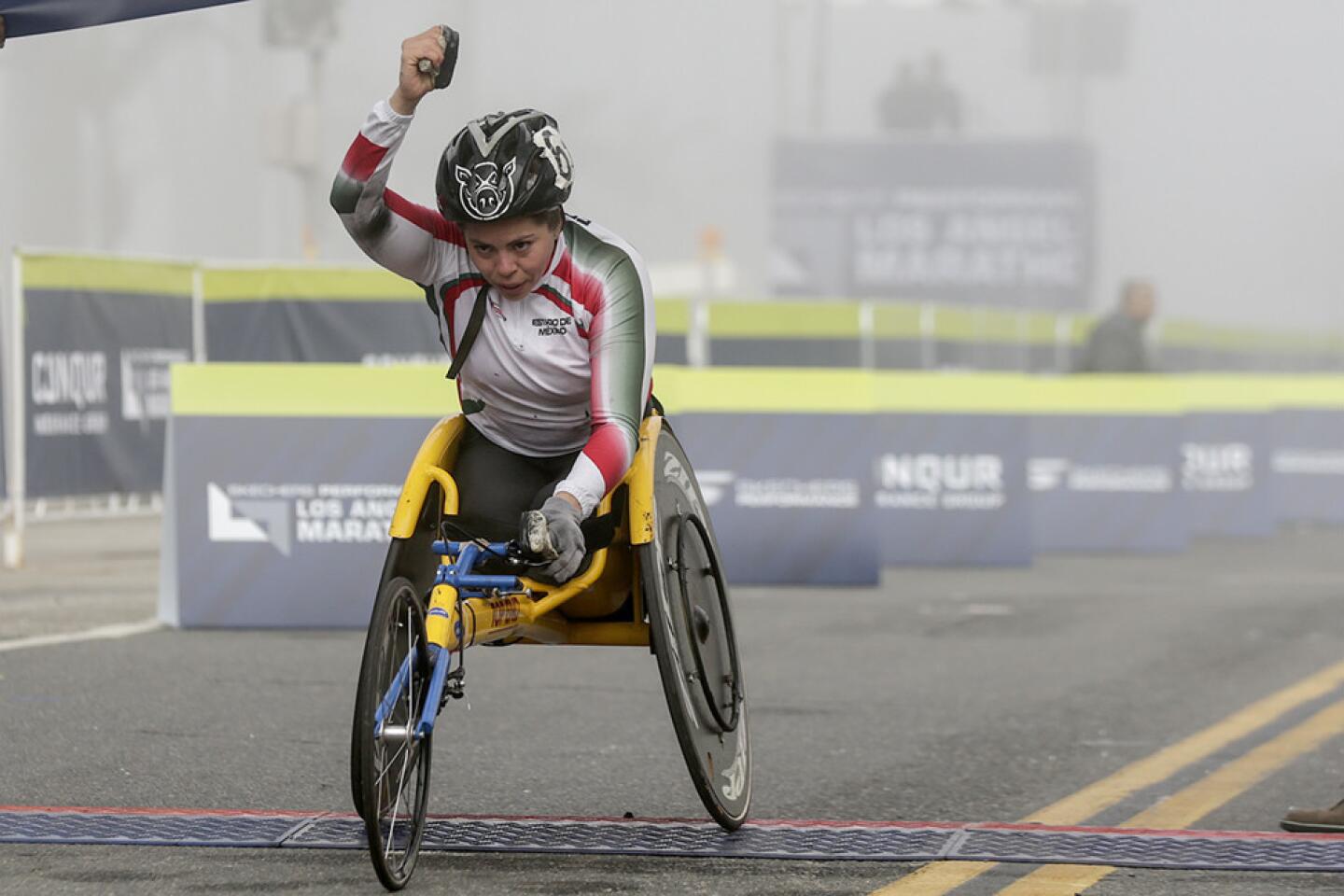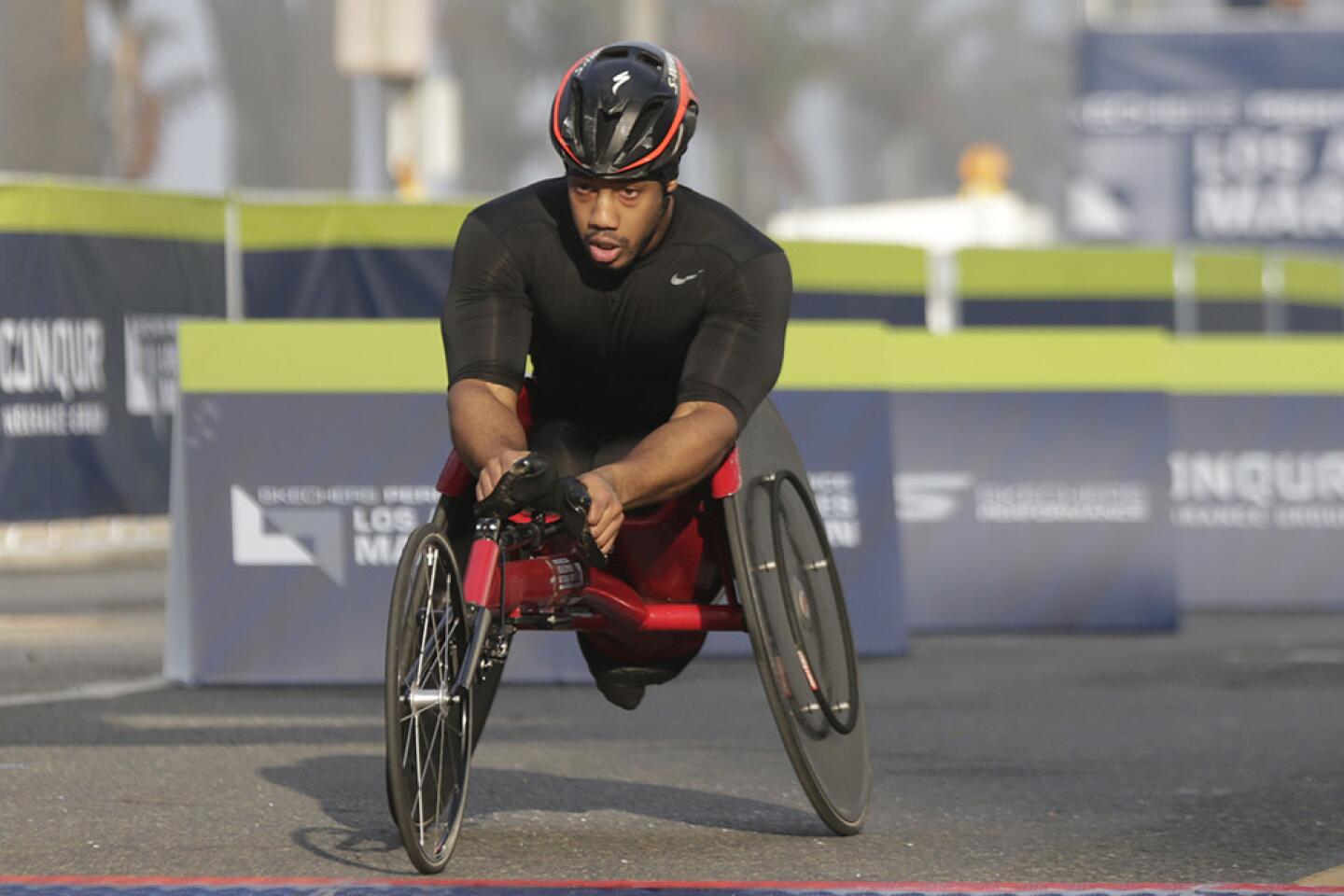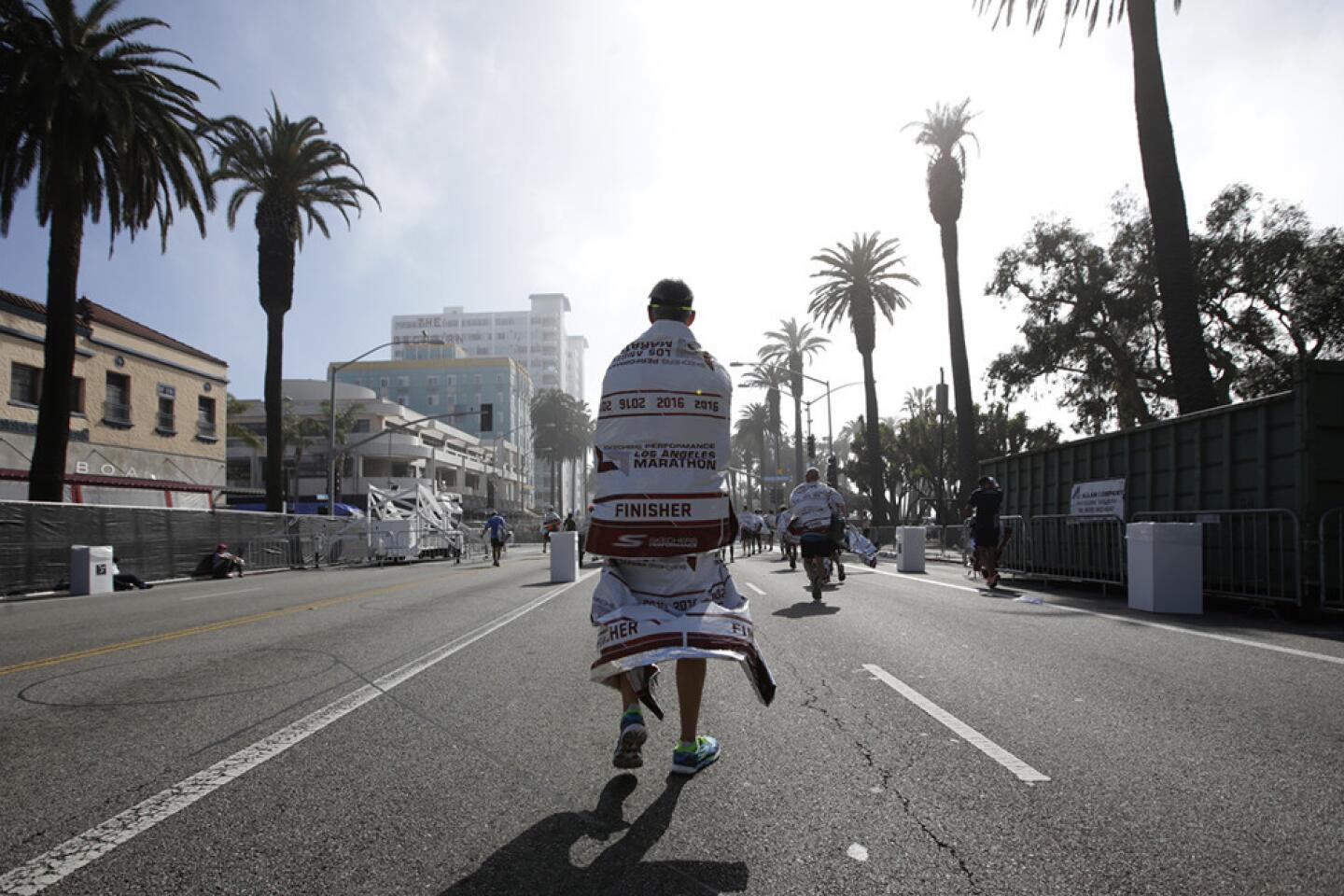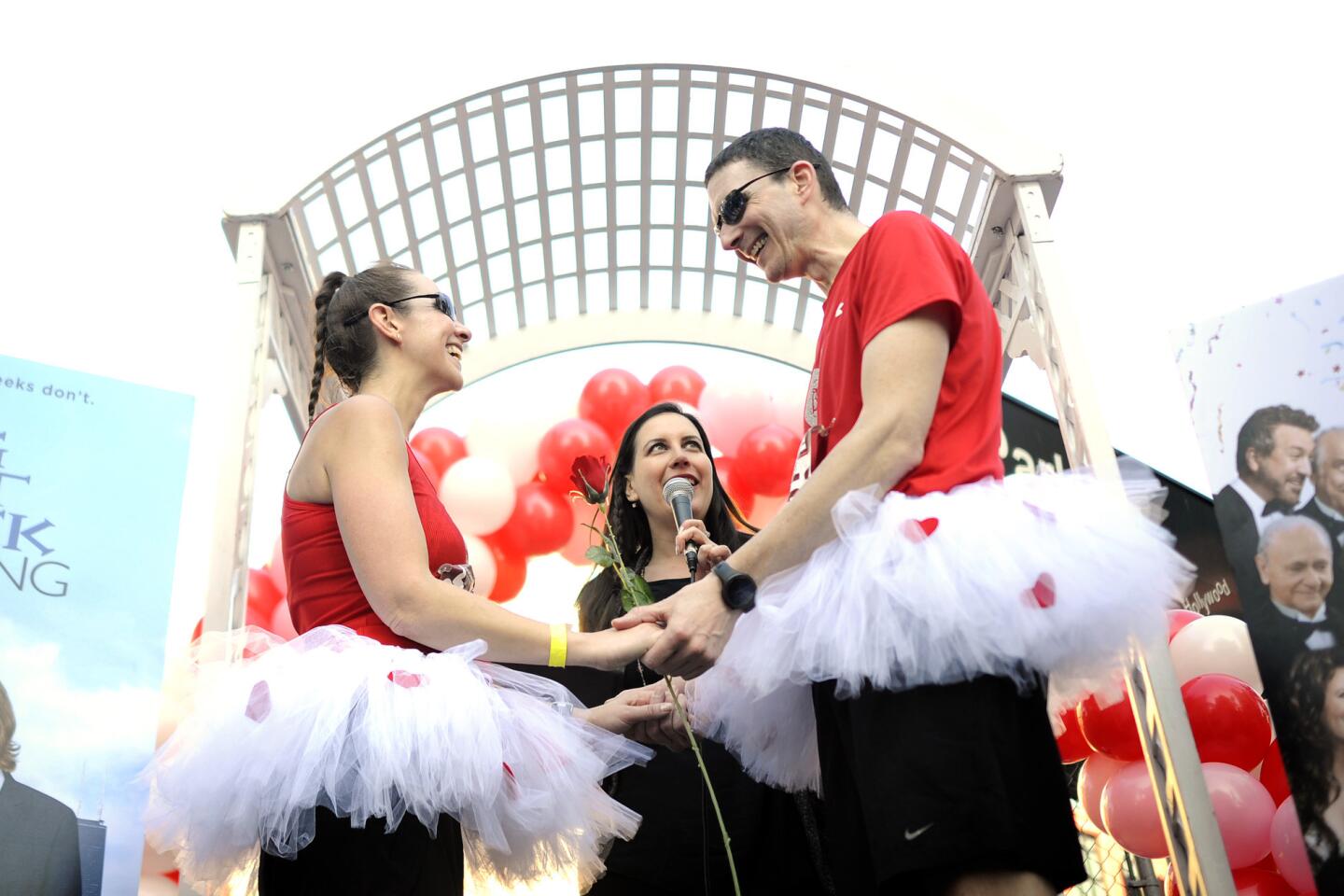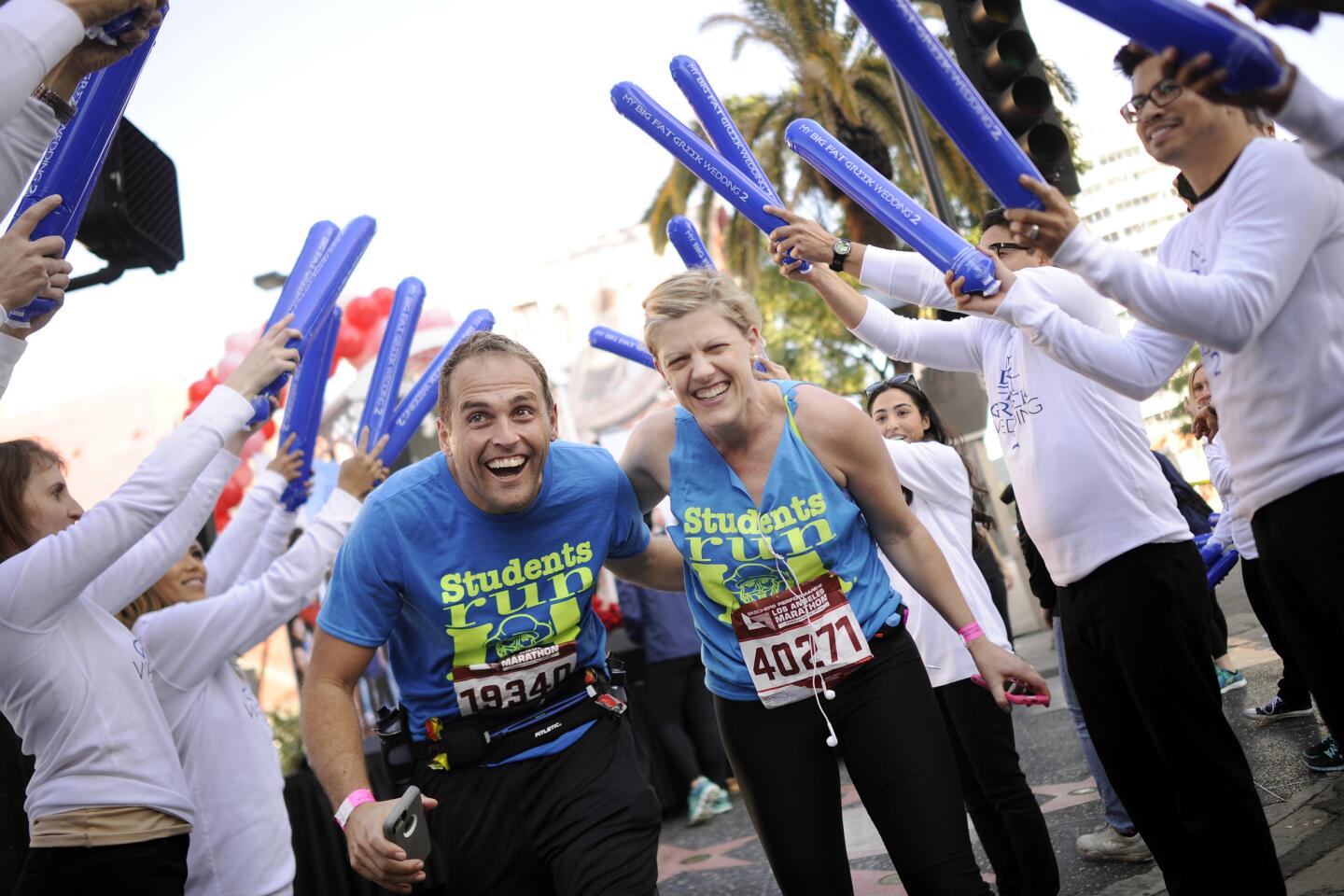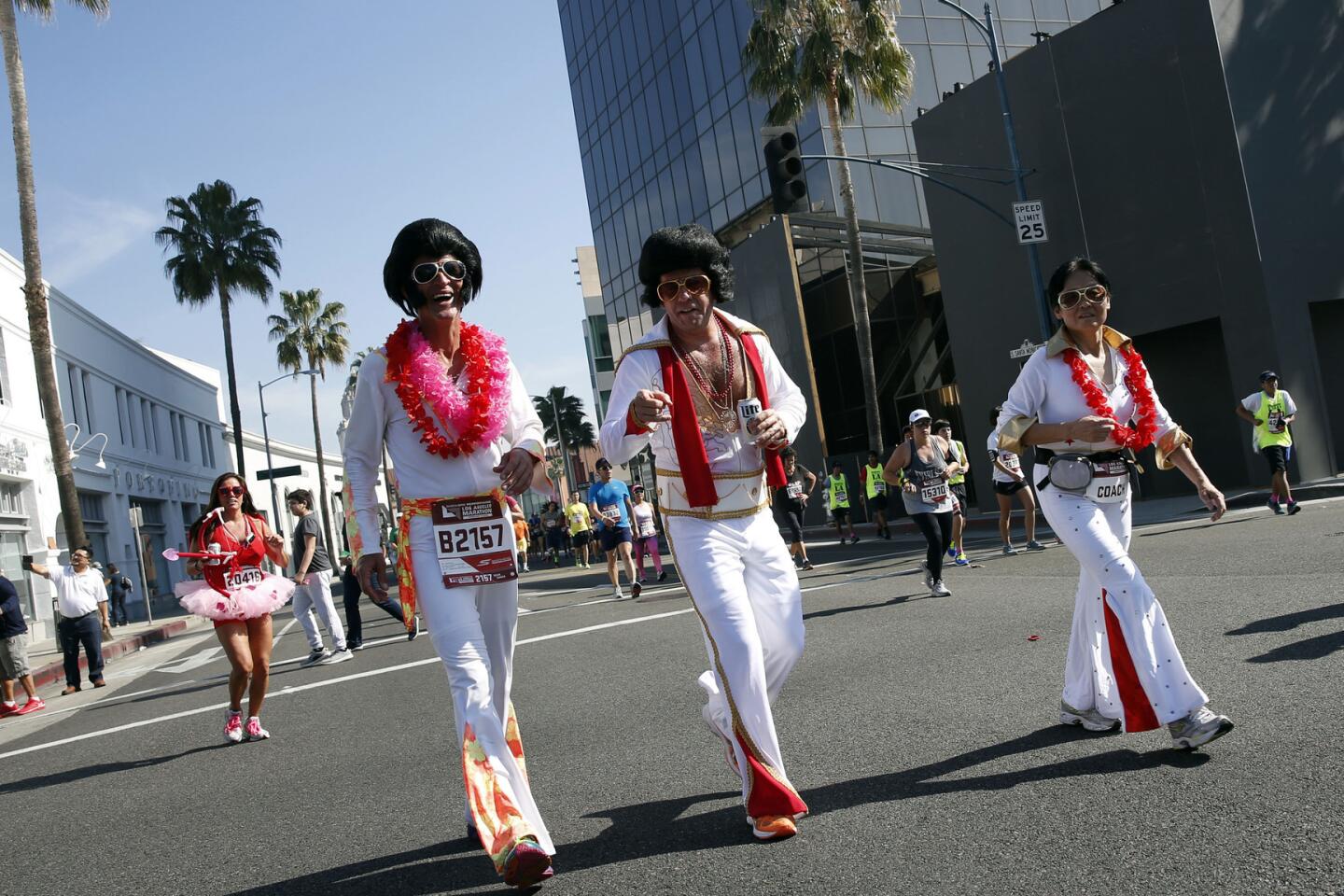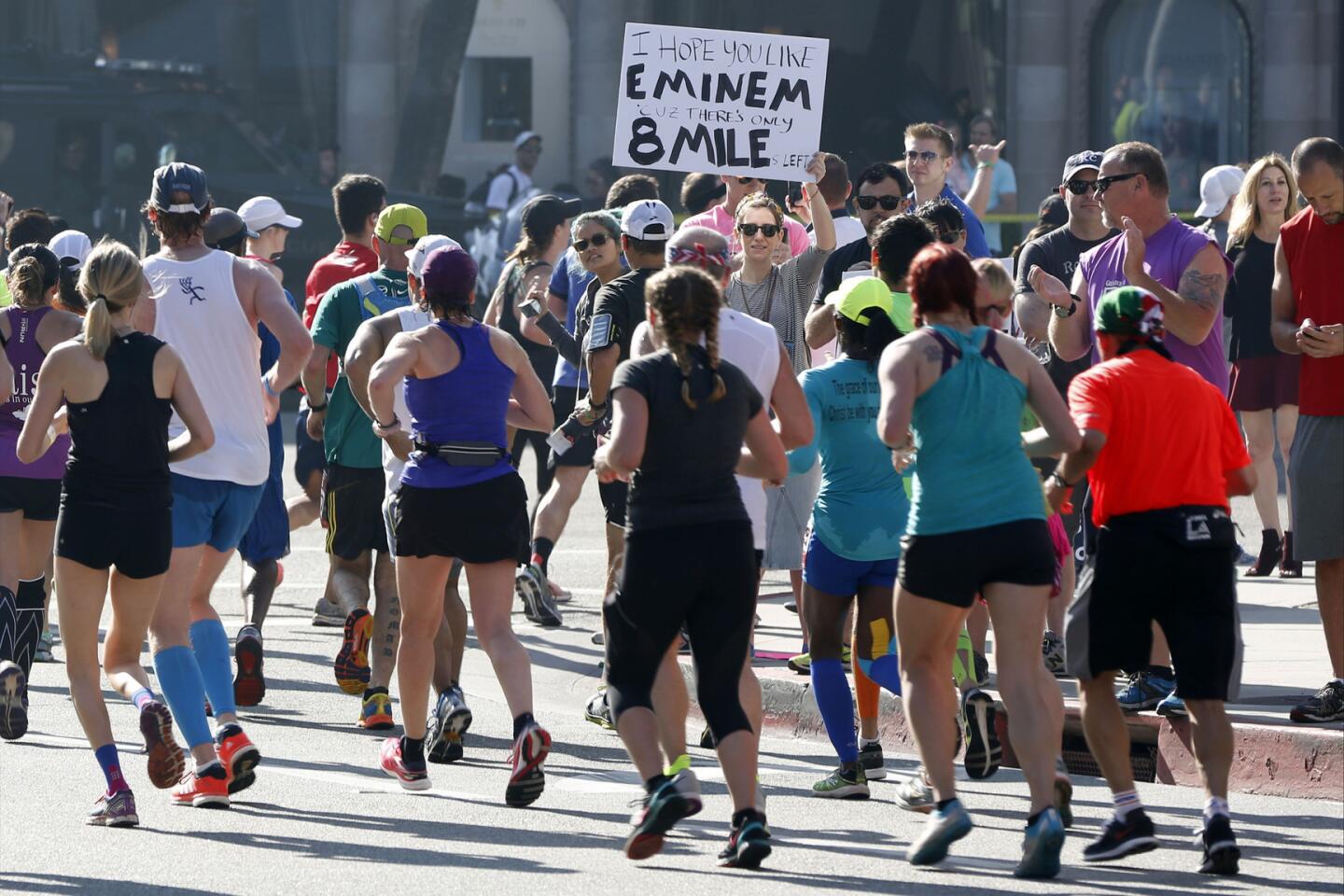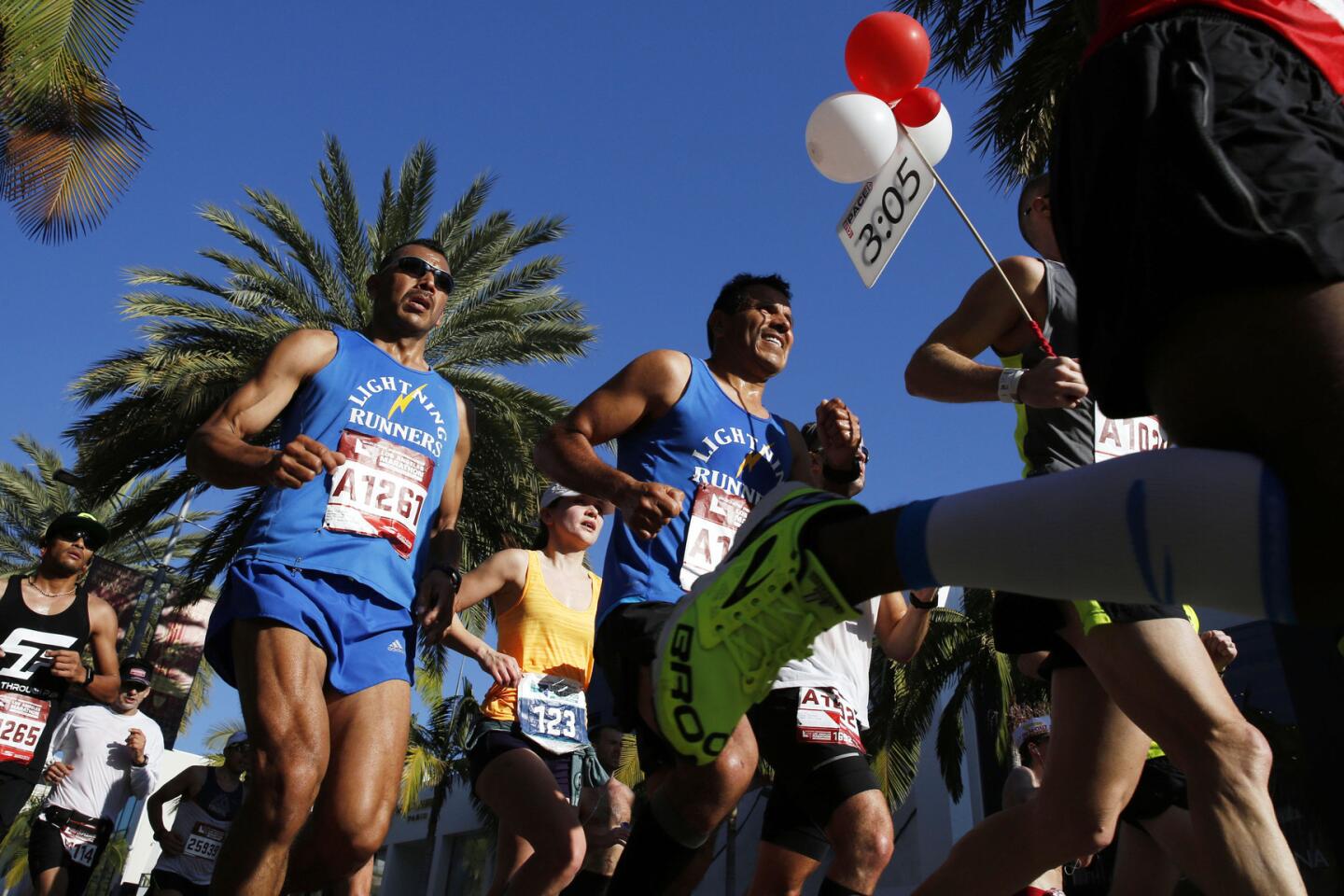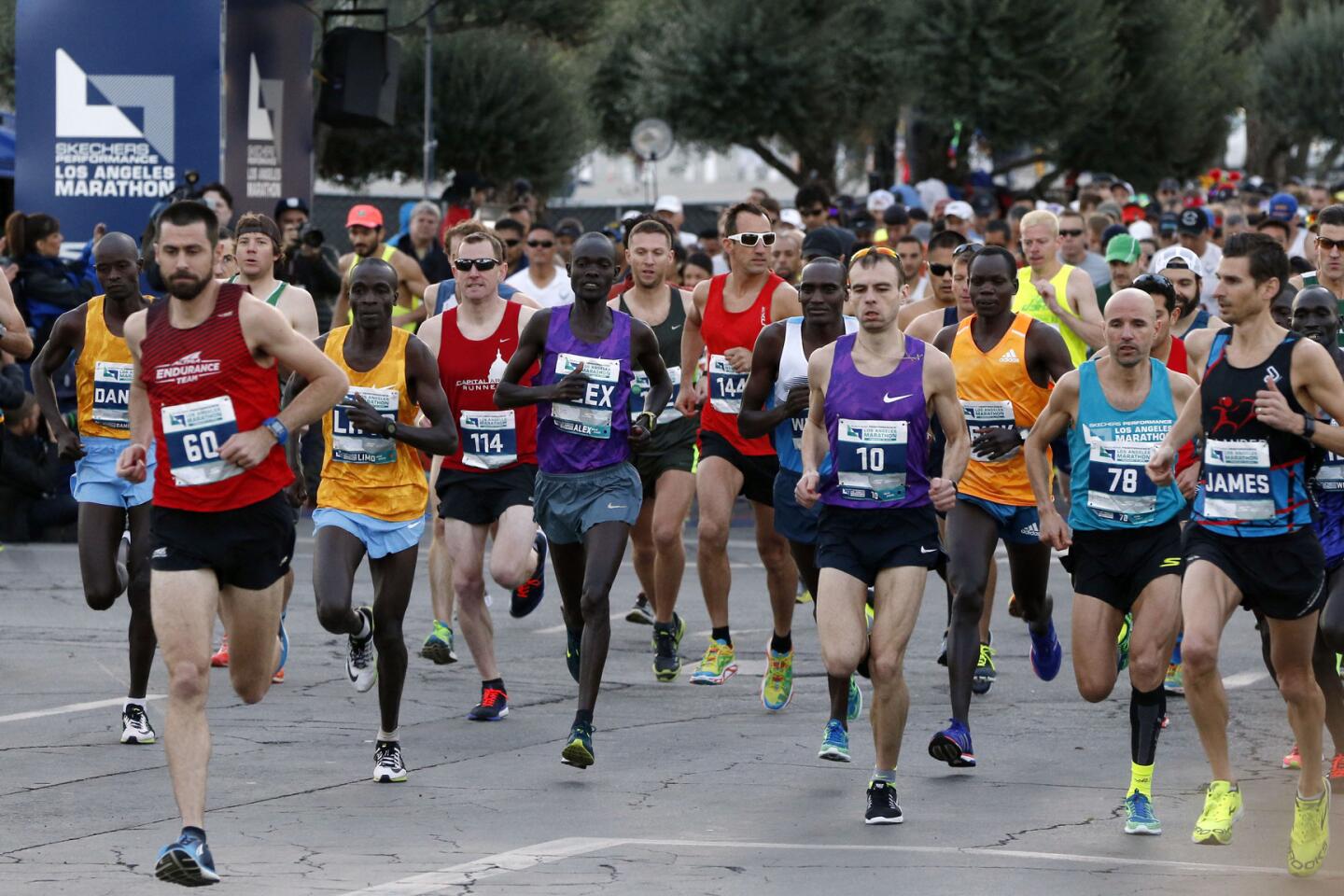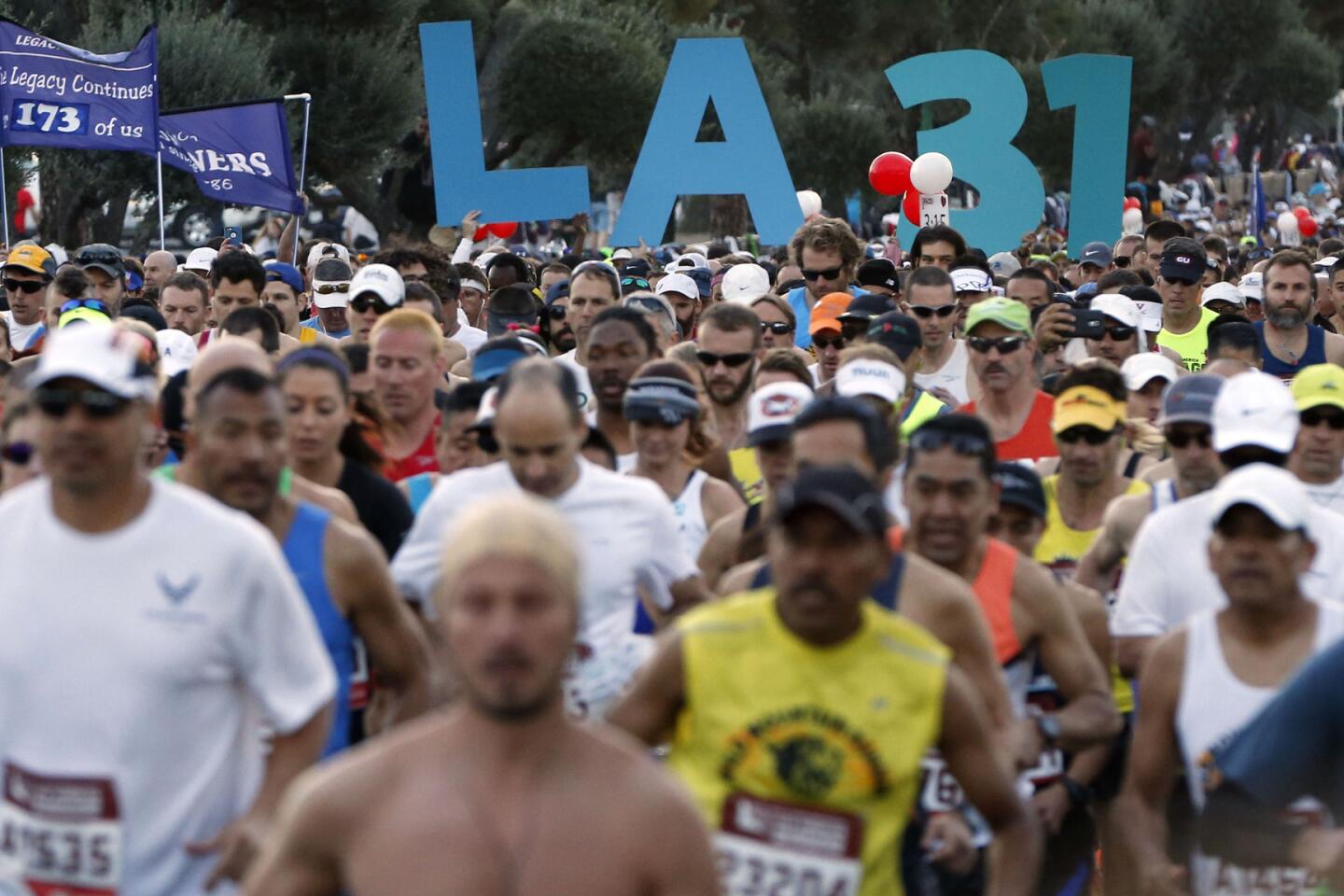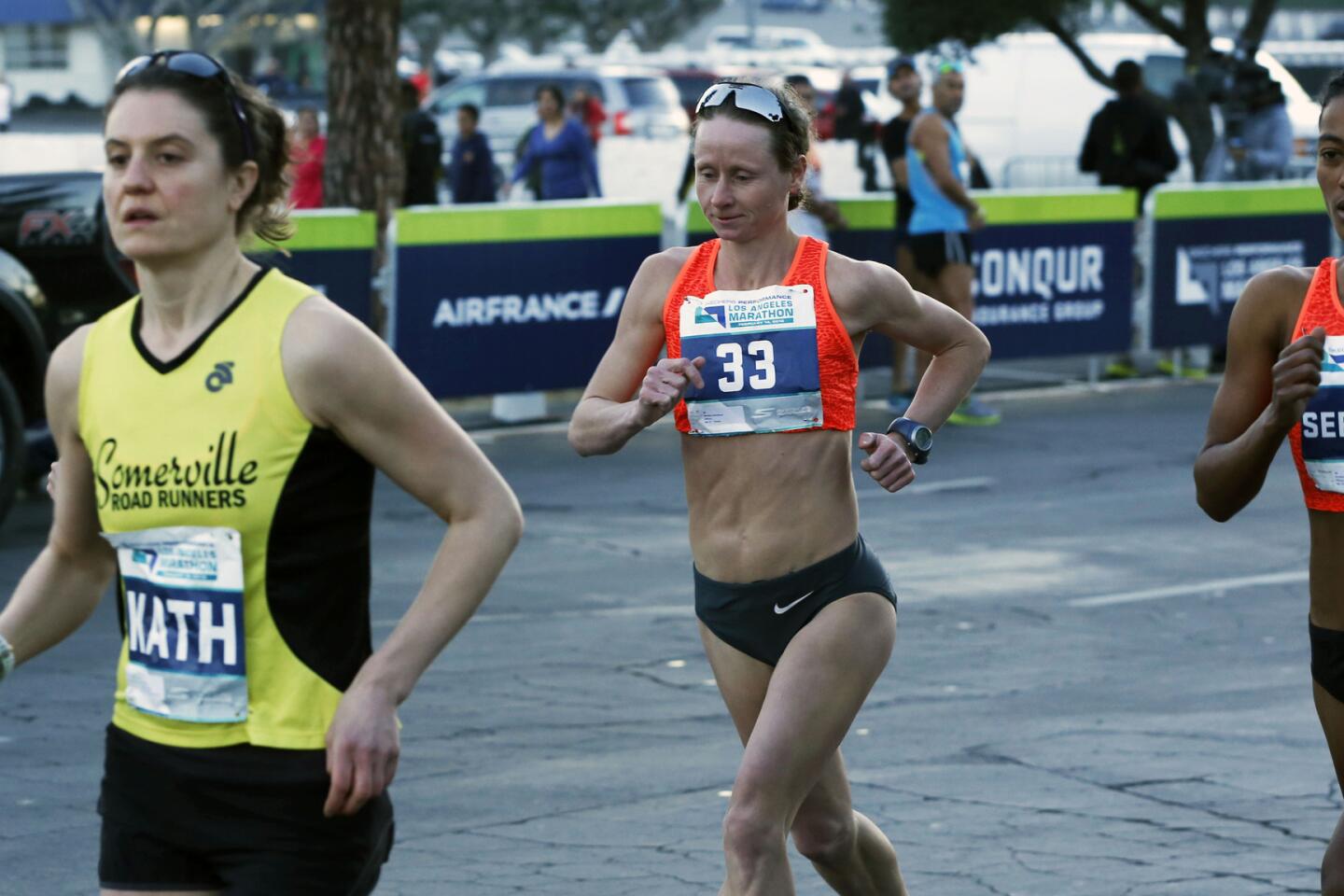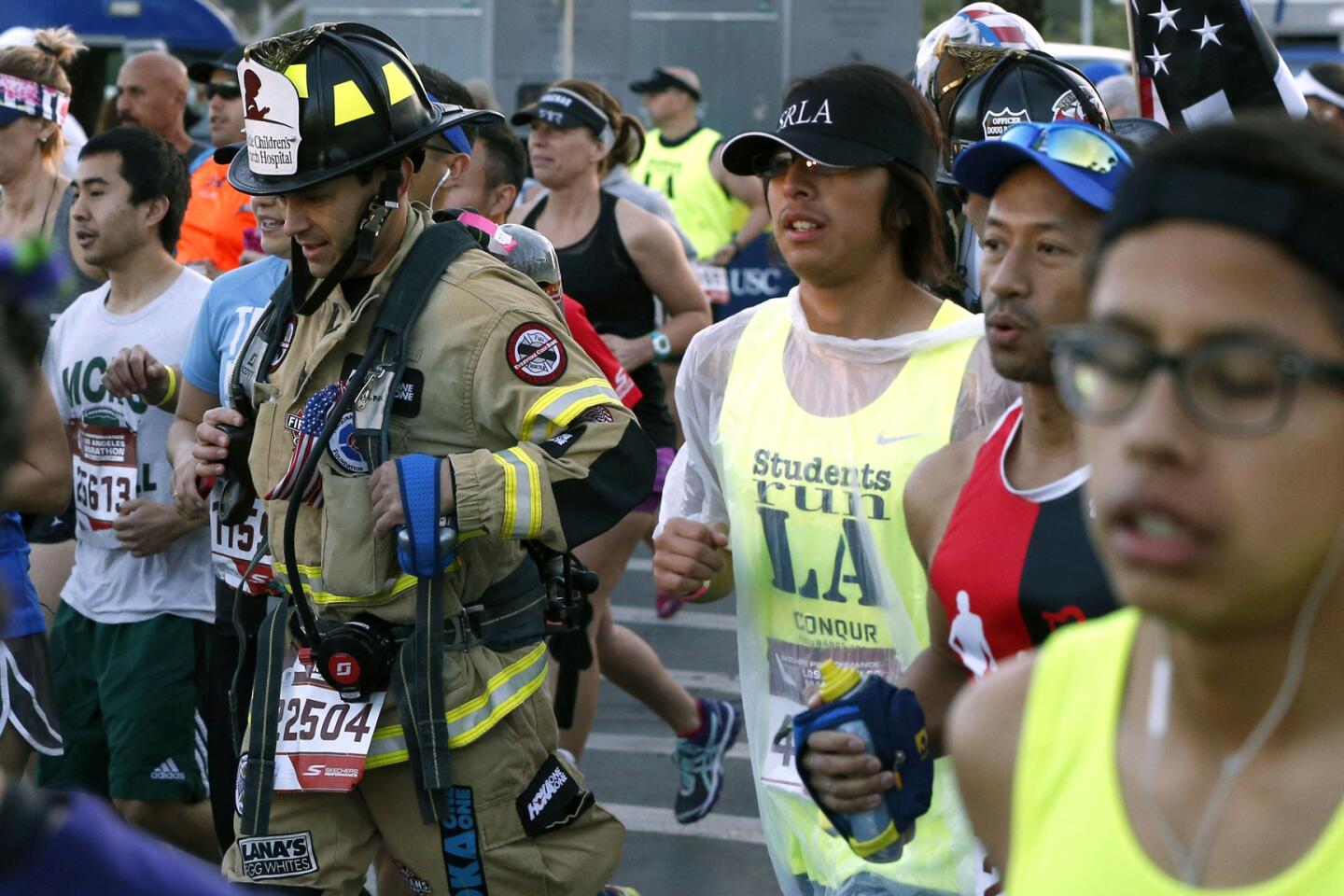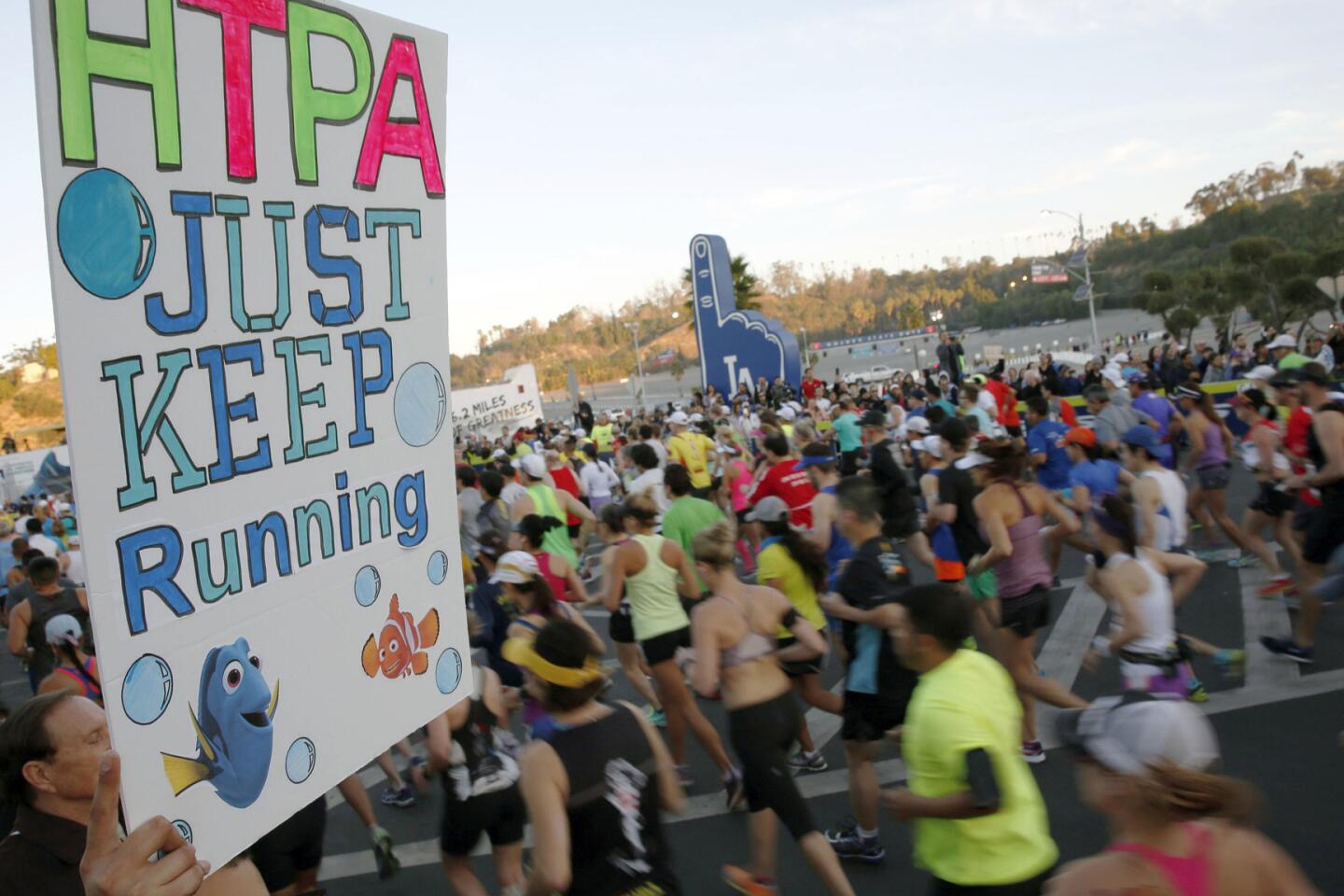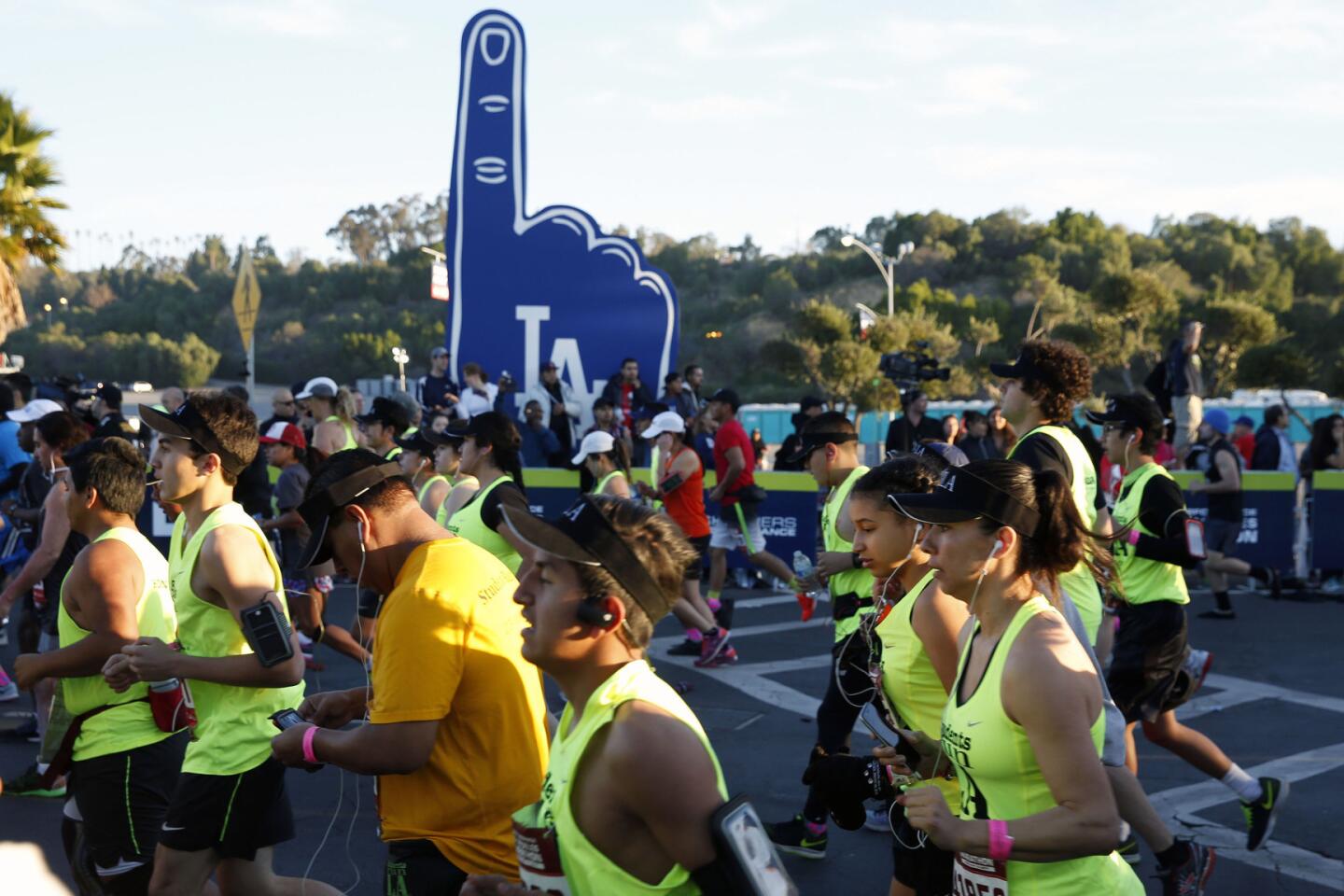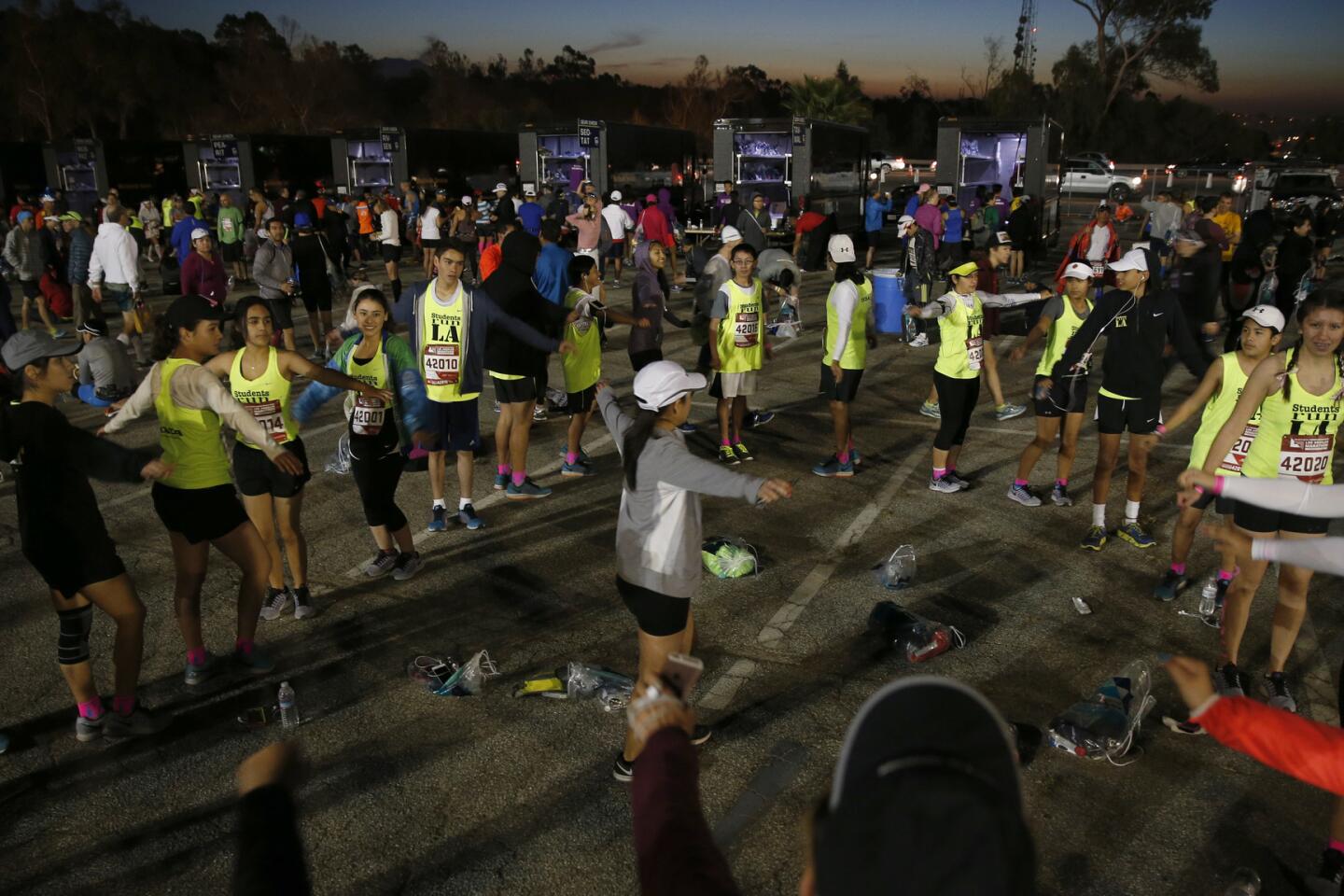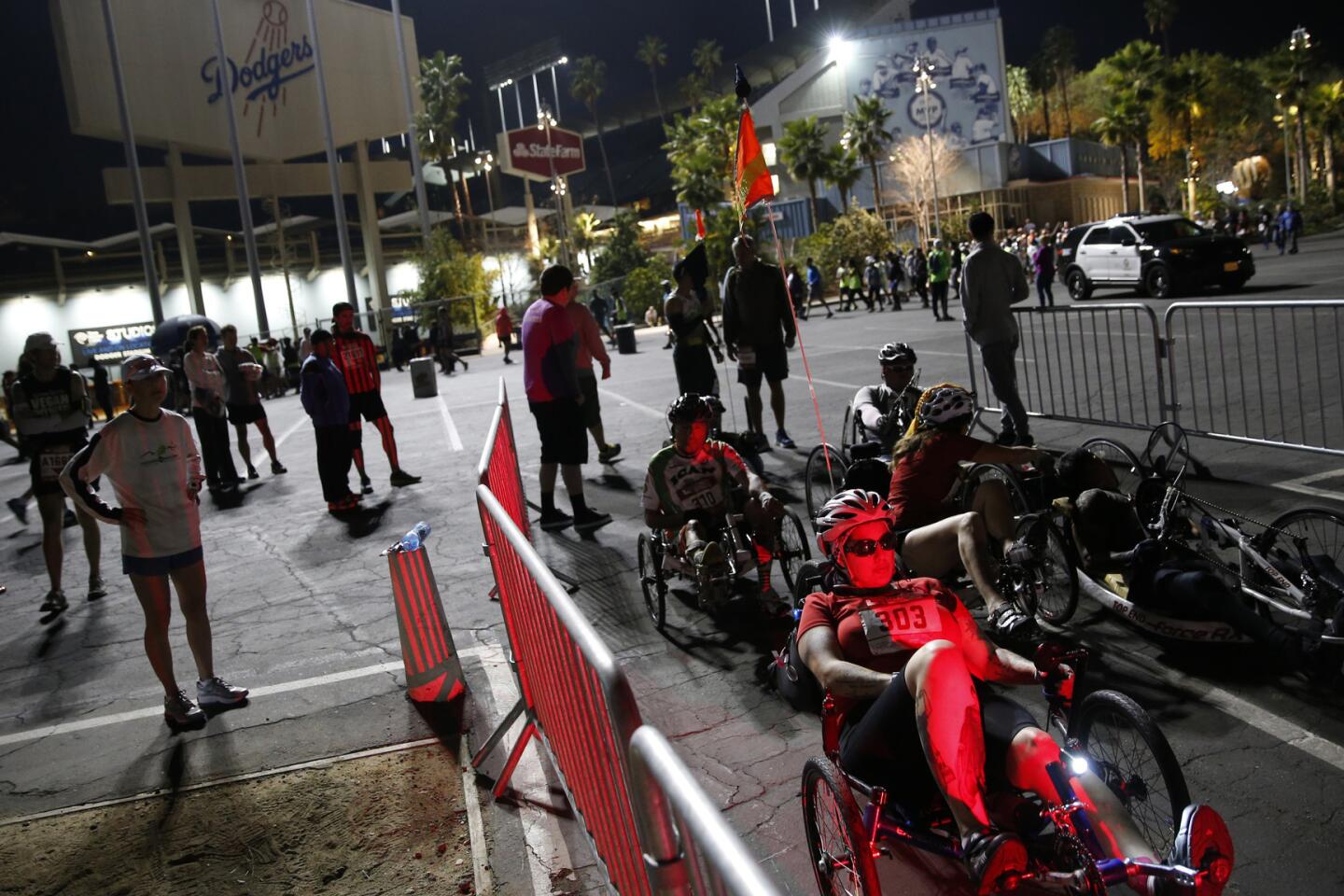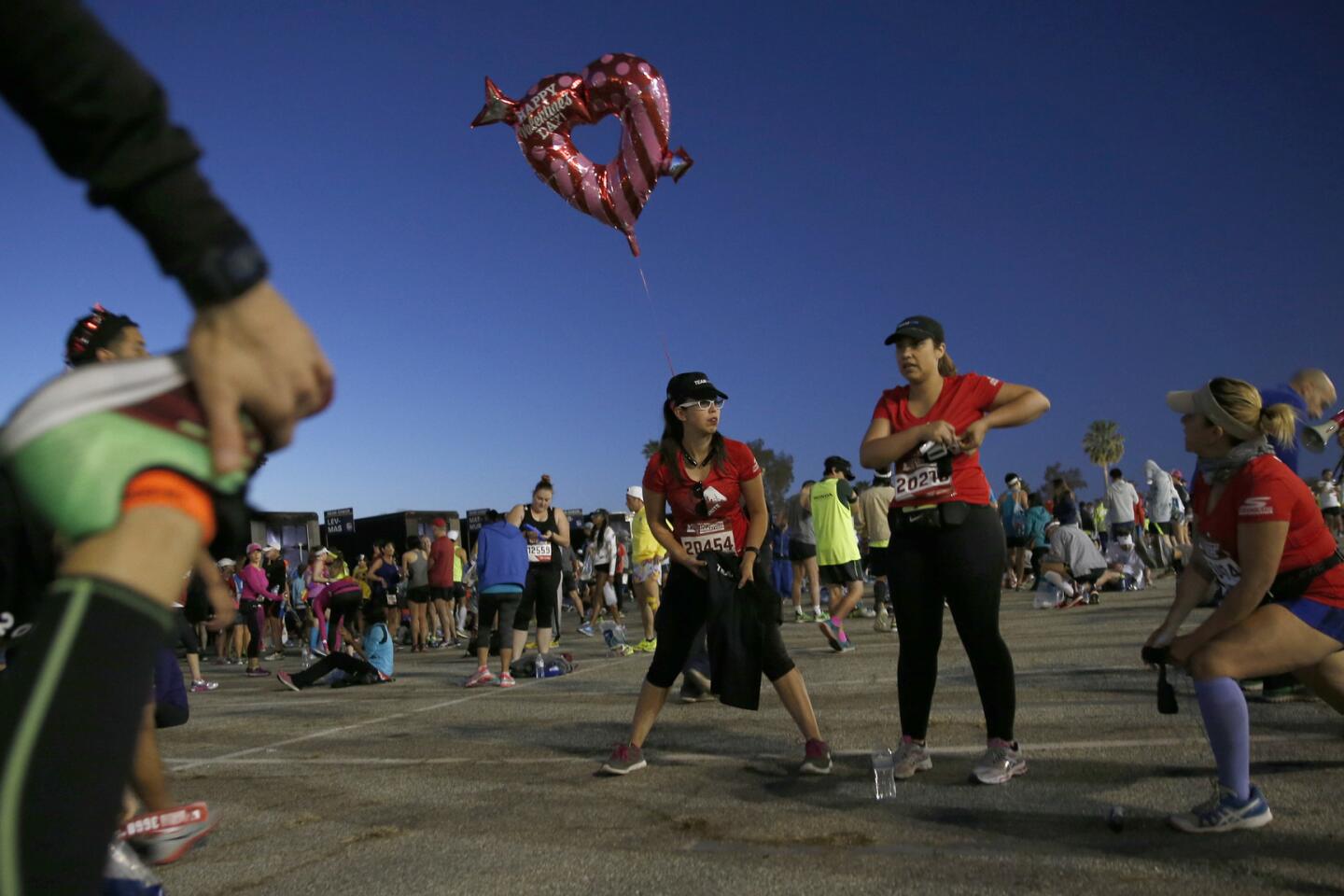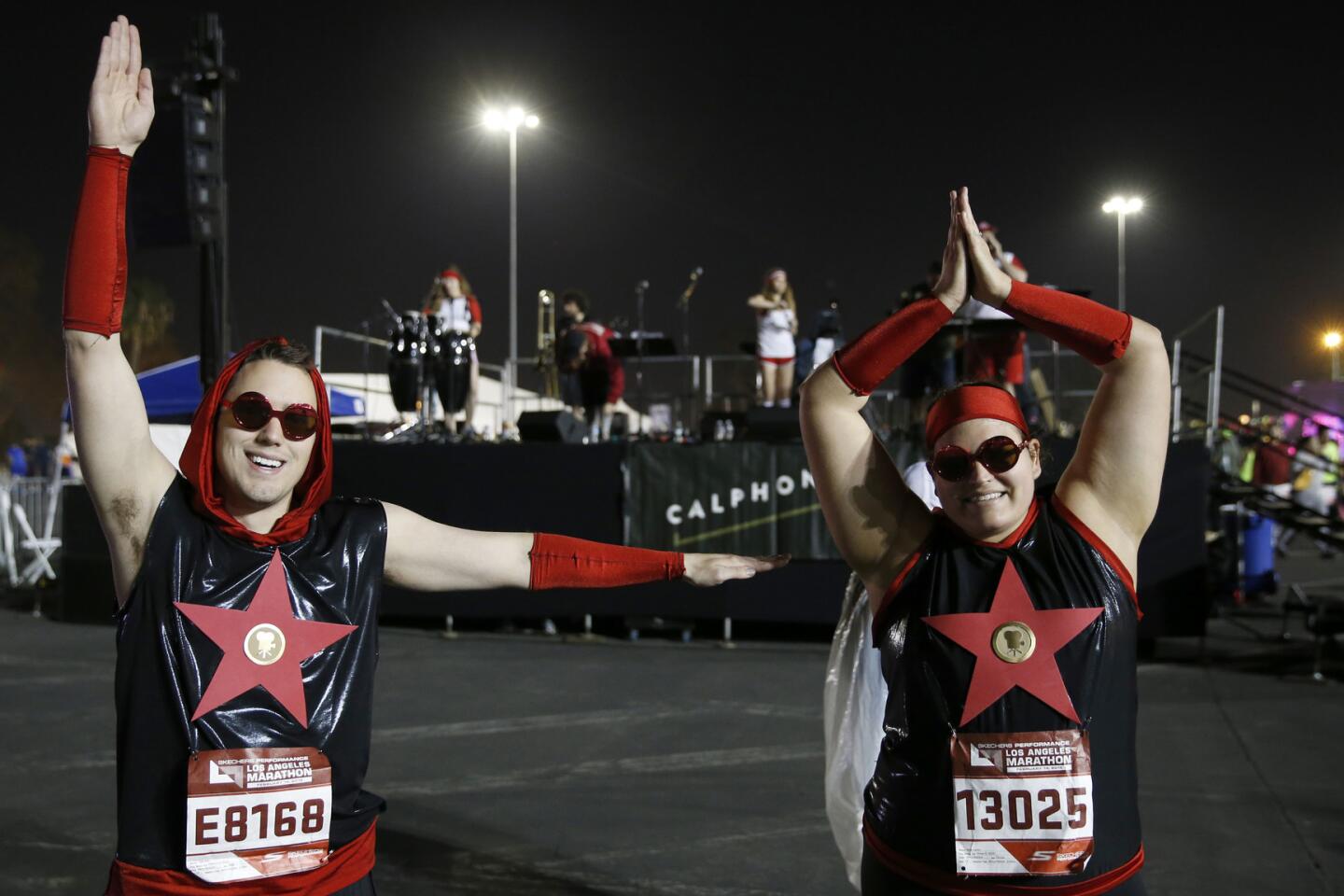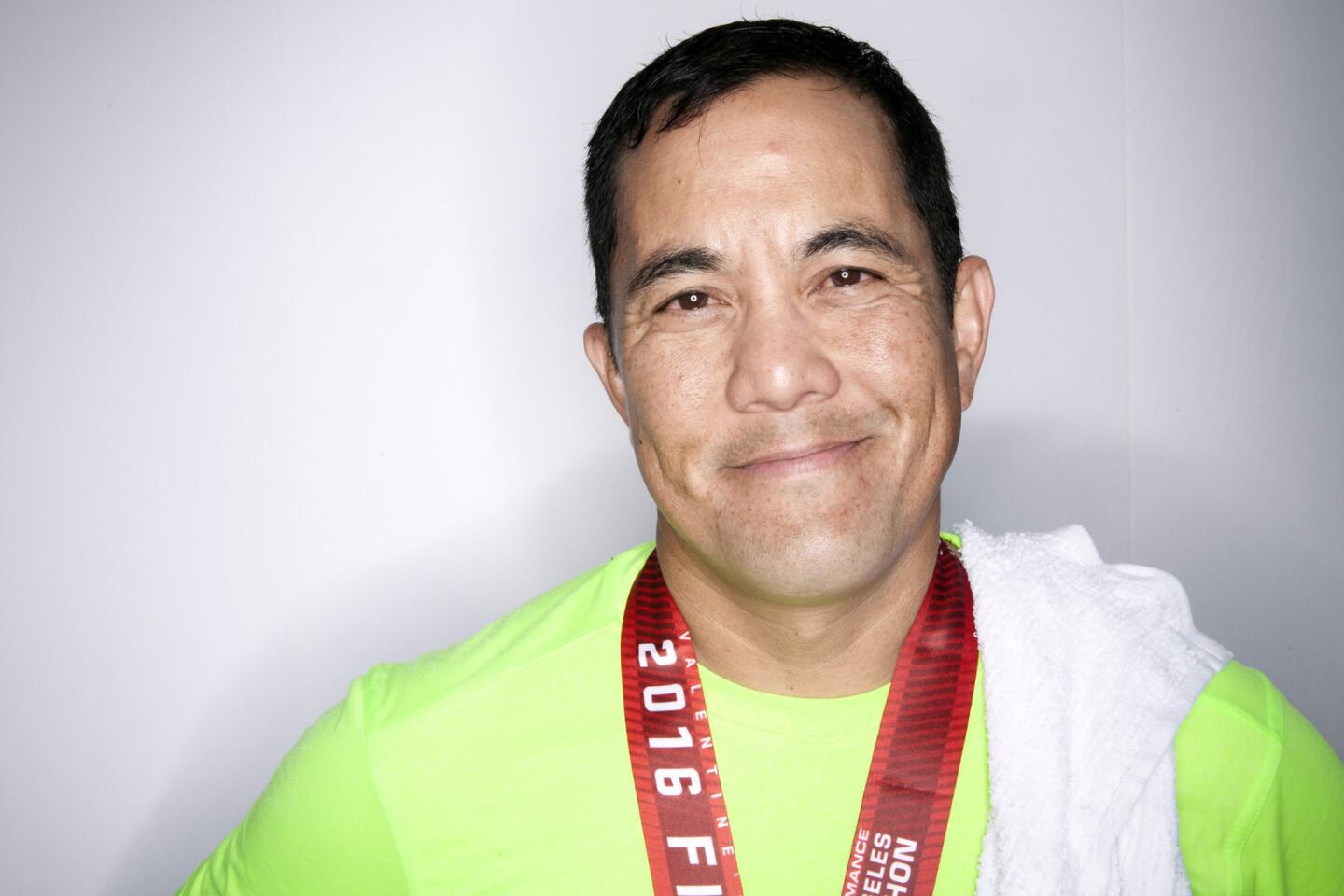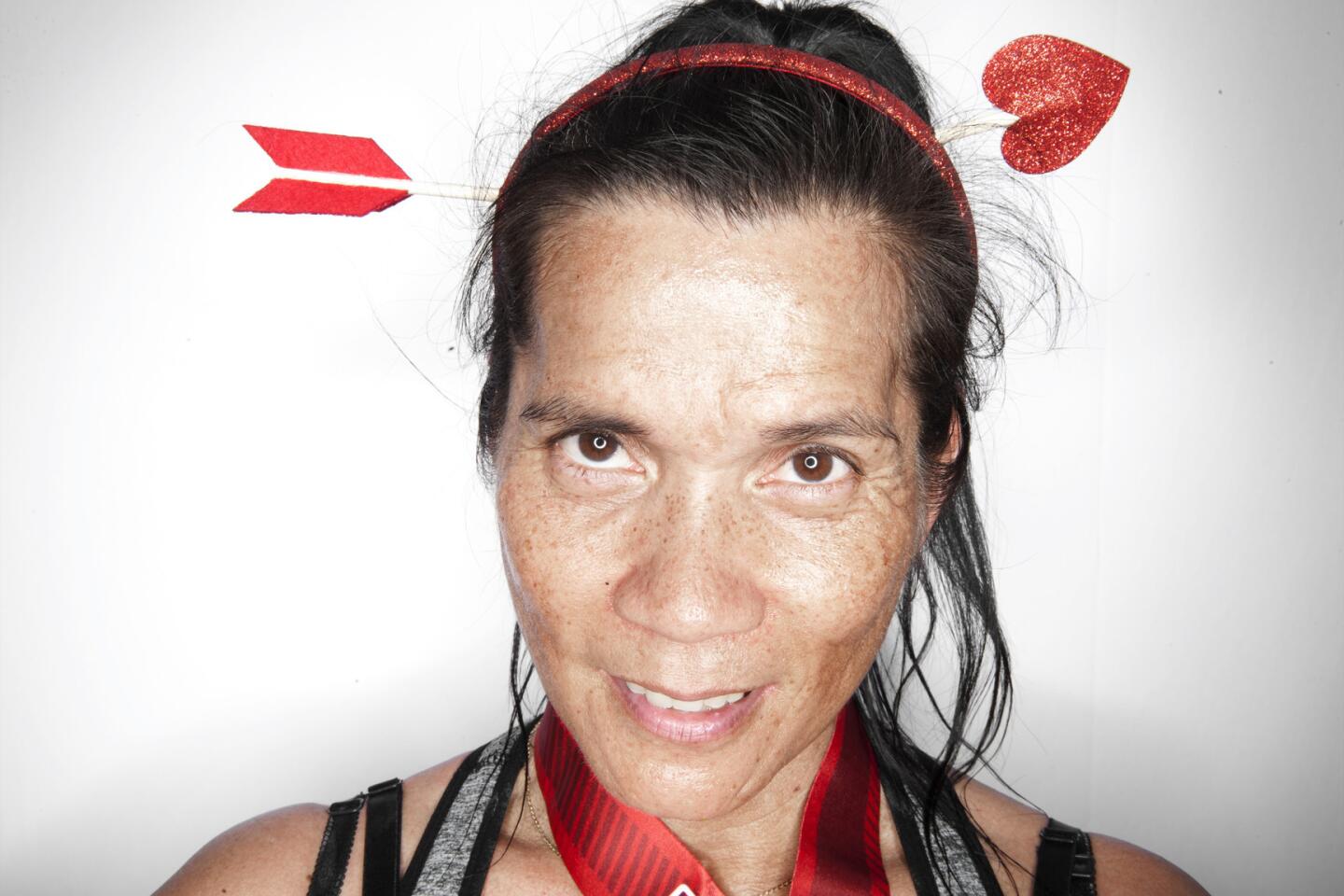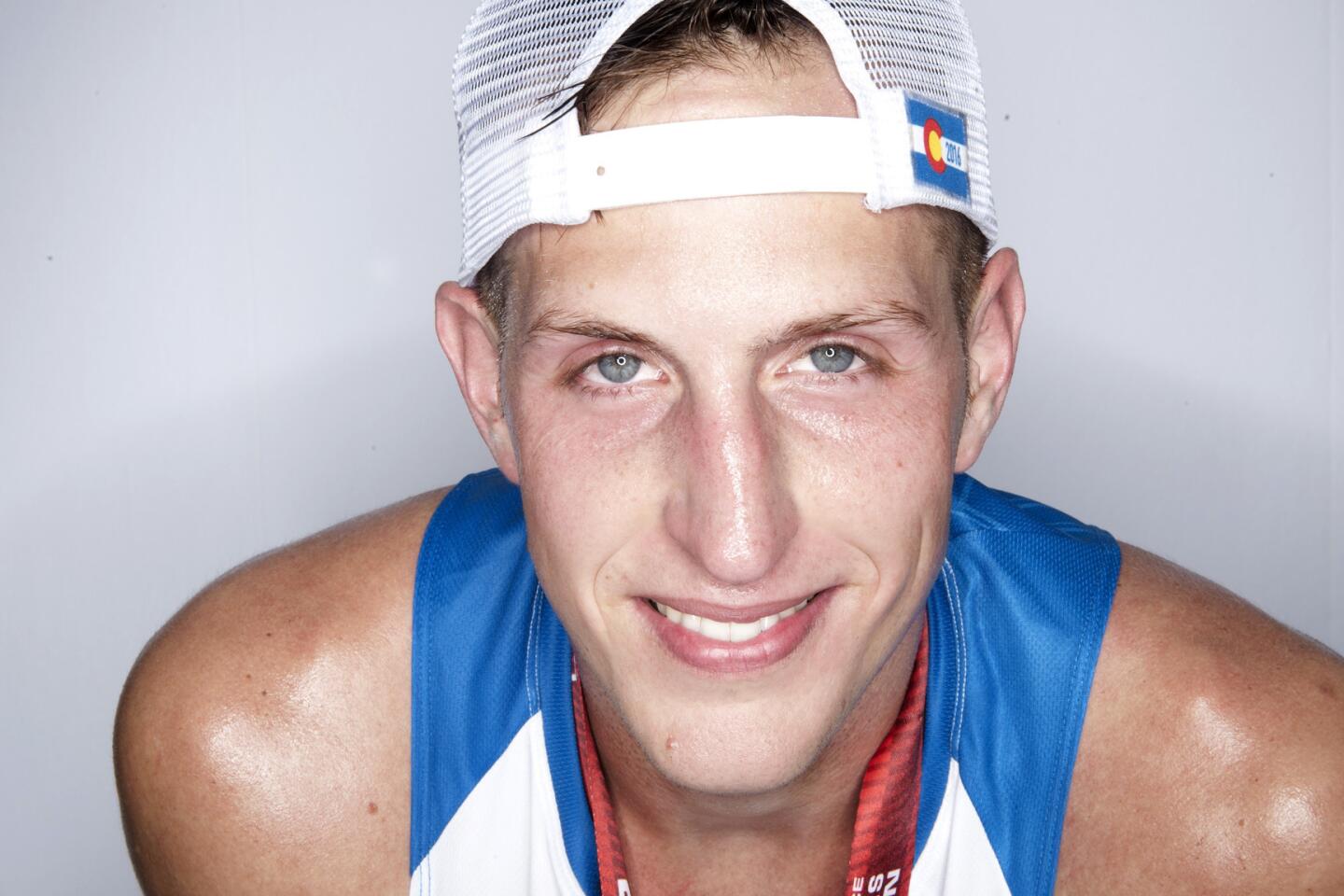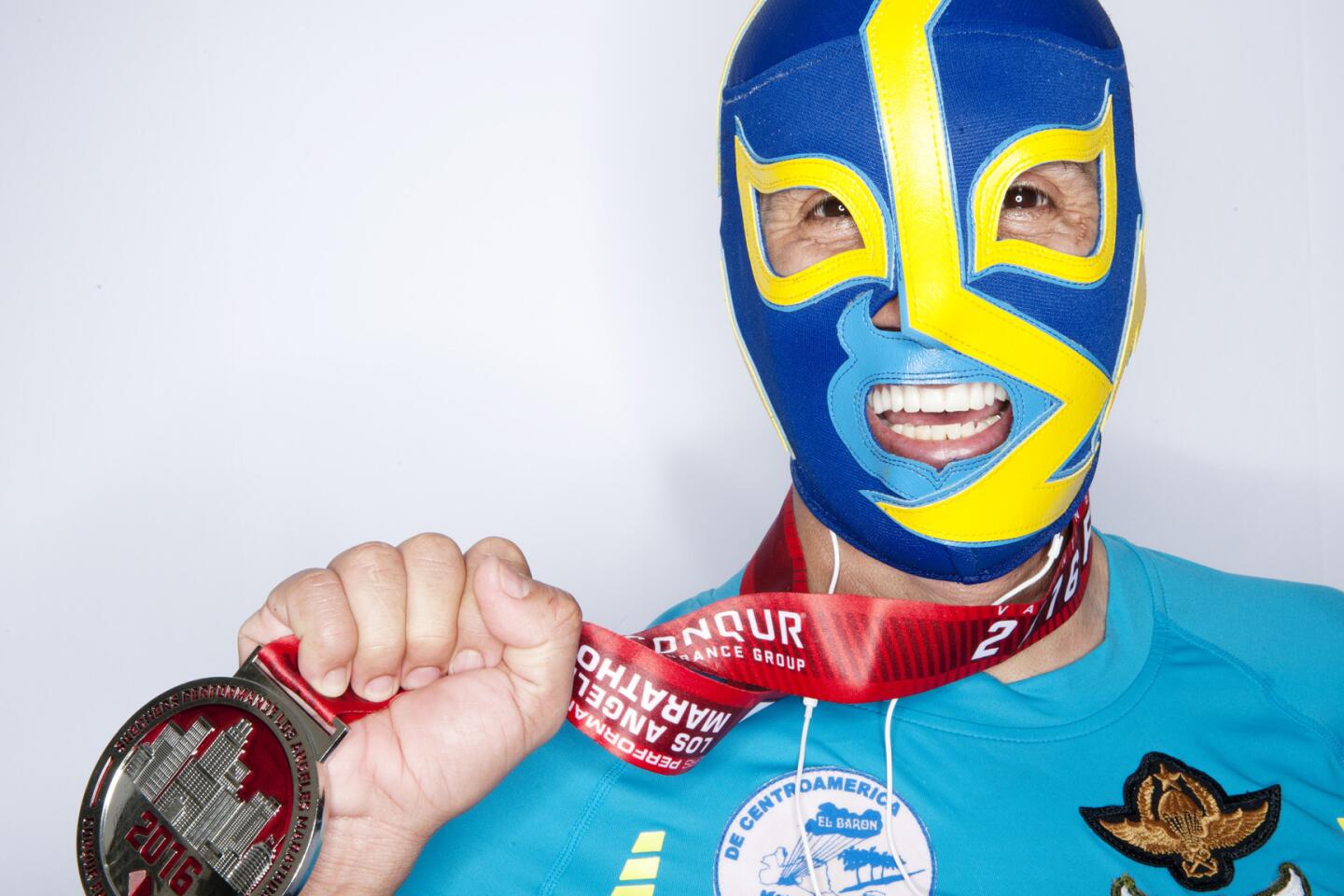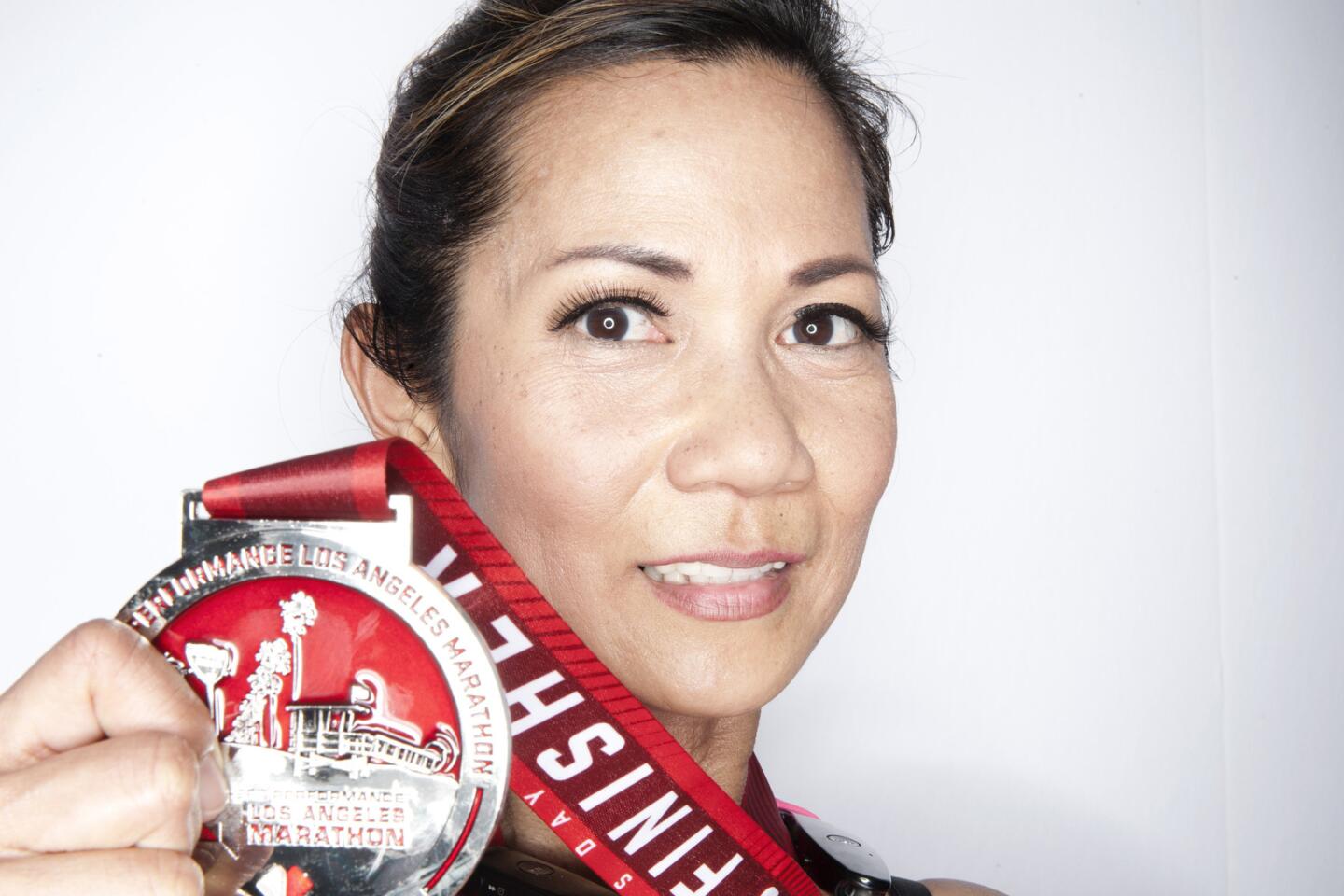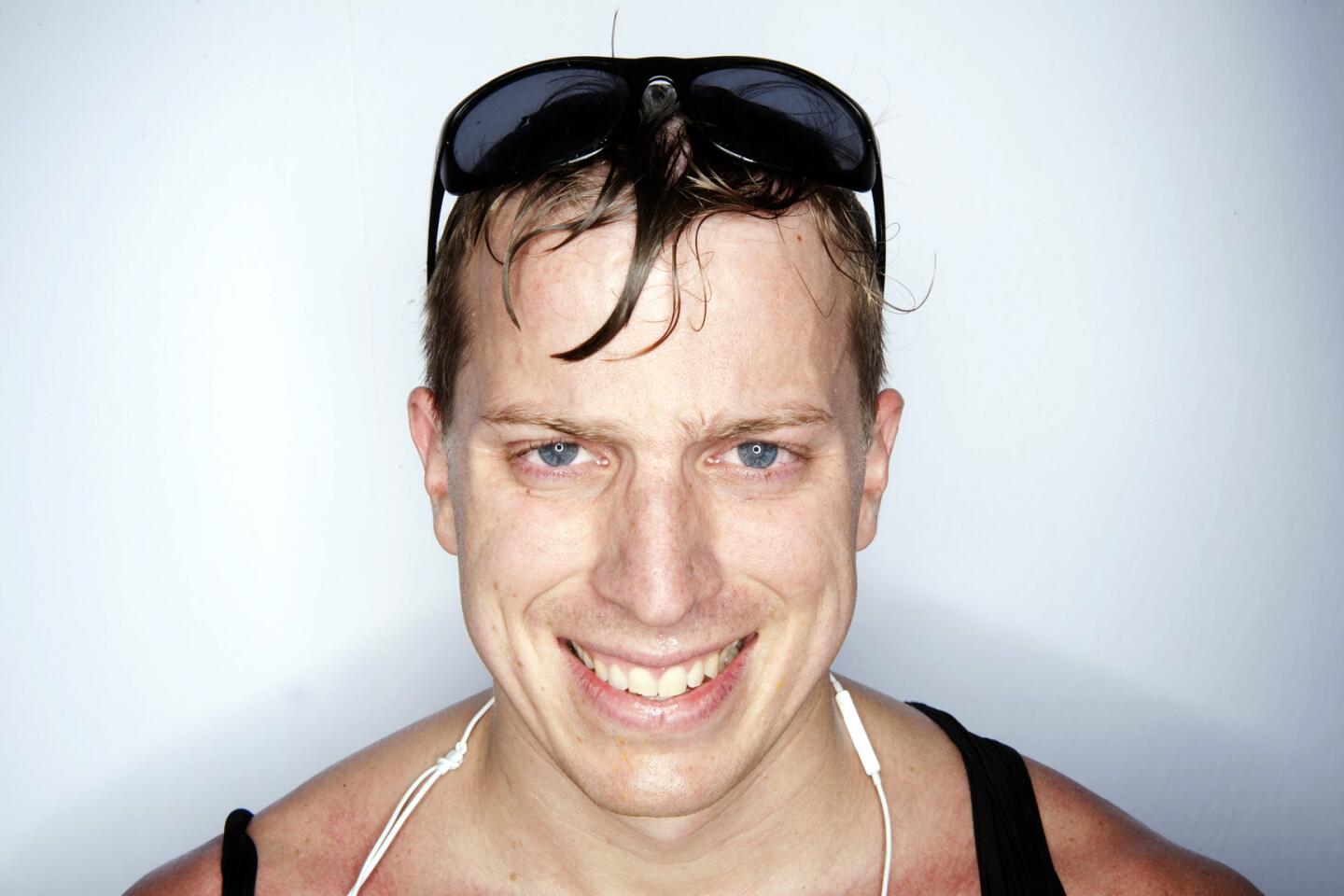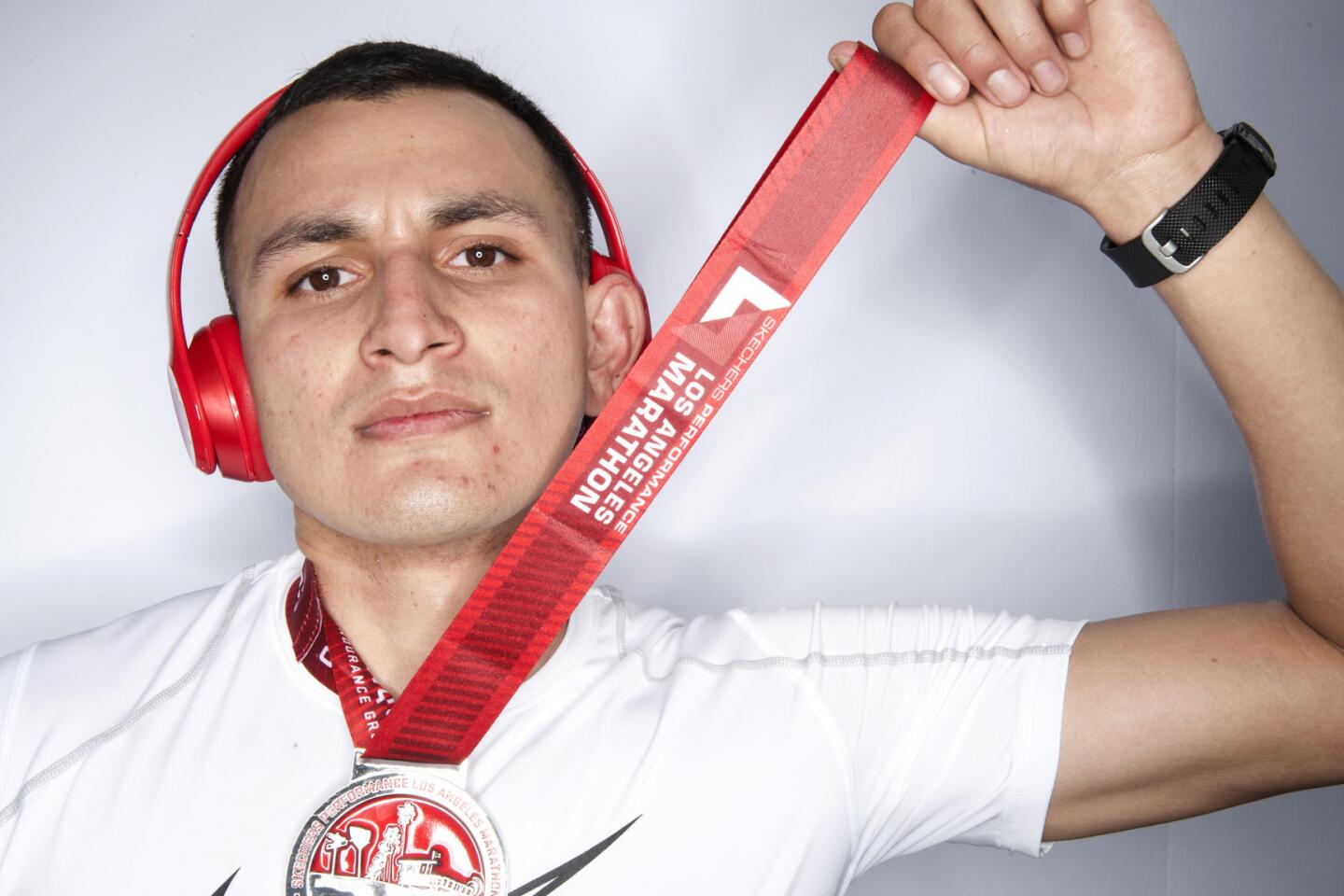Despite modest expectations, Julia Budniak is third among women in L.A. Marathon
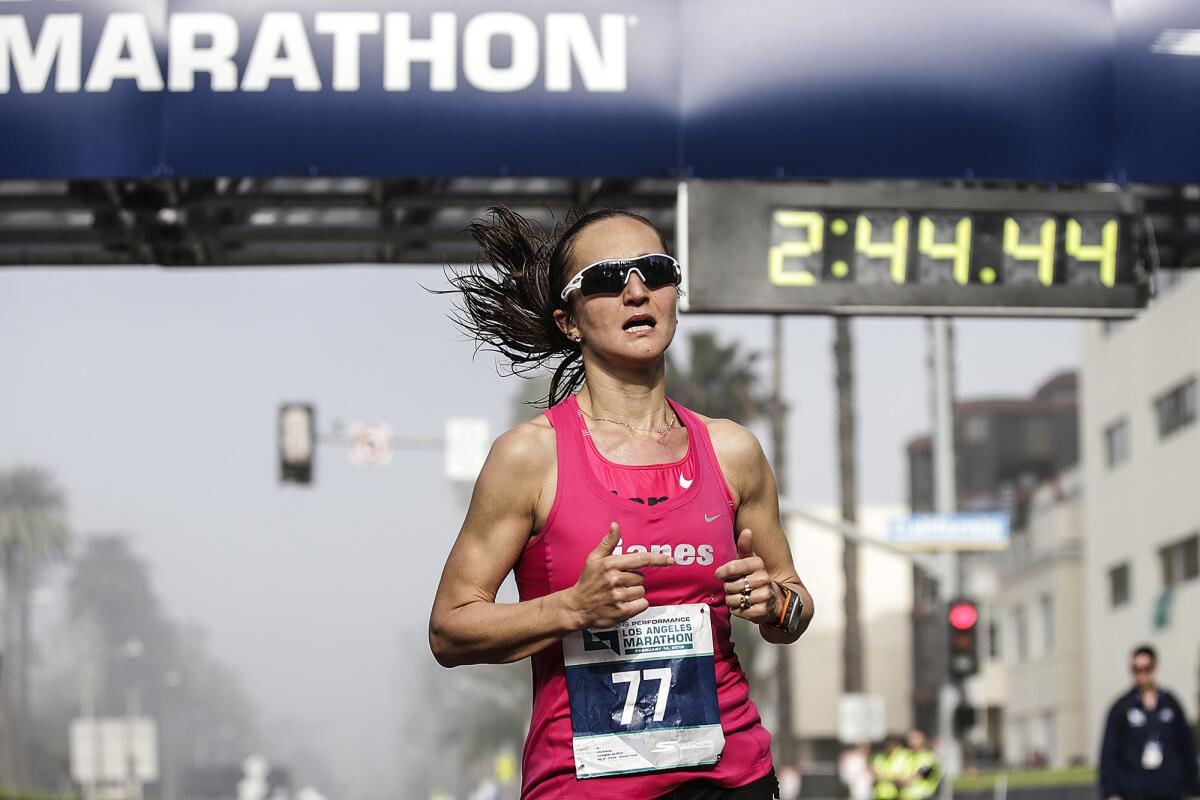
Julia Budniak finishes in third place in the L.A. Marathon women’s race on Sunday.
- Share via
Through more than half of the Los Angeles Marathon, Julia Budniak was resigned to running for fourth place. Three competitors had pulled so far ahead that they were no longer in view, so she assumed an optimum finish would keep her one spot off the awards podium.
At the same time, Budniak’s expectations were modest. Her main event while growing up in Poland was the steeplechase, which is 1/14th the distance of the marathon, and this was just her third time stretching out.
Budniak, 34, did wield a home-course edge over most of the elite division. Twelve years ago, she enrolled at USC on a track scholarship. Since graduation, she has served as an assistant coach, now at Cal State Los Angeles, and once belonged to the Santa Monica Track Club in the city where finishers in Sunday’s race made their final strides.
Racing was off Budniak’s radar for about three years when she surrendered to leg pain from sciatica. She began to sample an array of activities — kiteboarding, snowboarding, surfing, skiing — before renewing a love of running, this time from a long-distance perspective.
“I kind of didn’t want to run again,” she said. “But I just wanted to see why all these people were doing it.”
Besides, her infatuation with running dated to age 14, when she would watch marathons on television.
“I ran faster than I thought I would,” Budniak said of her first marathon in 2013.
Sunday’s race offered some promise of a medal. Marathon organizers shrank the pot of prize money in deference to the U.S. Olympic trials on Saturday, and the elite field for both genders lost some of its usual sheen.
Early in the second half of Budniak’s jaunt, a passing bicyclist affiliated with the race delivered some news that injected a second wind: A runner in front of her had withdrawn. The bronze medal was hers if she could repel any challengers.
“It made me run faster,” she said. “I was about as excited as you can get on Mile 20.”
Just then, Budniak noticed some familiar faces cheering her on. They were Golden Eagles — athletes from the college team that she coaches.
Unshadowed, Budniak clocked in at two hours 44 minutes 44 seconds — a full 12 minutes behind the runner-up. The yawning gap mattered little to her. This was a personal best for someone whose coaching duties, plus internship as a clinical dietitian, cut into time available for training.
“I still didn’t believe it,” she said of her lowest time yet, “for 30 minutes after I finished.”
The runaway women’s titlist was Nataliya Lehonkova, who led virtually from the blast of the starter’s air horn.
The Ukrainian, who is devoted to meditation, entered her state of Zen and, occasionally clutching her cramping midsection, fended off all challengers to breeze by almost two minutes in 2:30:42.
Serkalem Abrha of Ethiopia stayed tethered to the leader for several miles before they separated. Despite cooler temperatures that allayed fears of widespread ill effects from heat, Abrha required medical assistance for leg cramps and stomach uneasiness after crossing the line in 2:32:24.
The elite men generated a modicum of suspense. A king-sized-bed blanket could have been tossed over a pack of the half-dozen pacesetters until, one by one, they started peeling off. There were Kenyans, aside from a Ugandan infiltrator — their training partner, Alex Chesakit — and they dawdled through the first 13 miles as if sizing each other up.
Ultimately, it came down to Weldon Kirui and Willy Koitile. Kirui, wearing shoes provided by race sponsor Skechers after his luggage became temporarily lost on the flight from Africa, legged in 17 seconds sooner than Koitile in 2:13:07.
Kirui, encouraged by a fourth and a second in his two previous visits, told his U.S.-based manager before departing, “I’m coming to L.A. to win this marathon.” Though Kenyans are presumed to favor warmer conditions, Kirui welcomed the morning’s slight chill, citing his high-altitude training back home.
Defending champion Daniel Limo collected another medal, for third in 2:13:52. Jacob Chemtai took fourth.
The wheelchair divisions were won by Alicia Ibarra of Mexico in 2:15:56 and James Senbeta of Champaign, Ill., in 1:36:10.
The victorious times were sluggish. For the men, it was the slowest in nine years, while the women had the second-highest since the course originating at Dodger Stadium was adopted.
Sunday was Valentine’s Day, which was cited by some past entrants for their absence. Still, 25,495 were registered, just 559 shy of the record set in 2010. The actual number of starters, however, was 21,565.
More to Read
Go beyond the scoreboard
Get the latest on L.A.'s teams in the daily Sports Report newsletter.
You may occasionally receive promotional content from the Los Angeles Times.
